“Socialism” is intrinsic to the “Right.” When journalists and academics refer in one breath to “liberalism, neoliberalism, and the Right-wing,” that attests to their ignorance, not to the accuracy of any such bastardization. Even at its most basic level of understanding, it seems to have been forgotten that in Britain there were Tories and Whigs in opposition. Now, Toryism has become so detached from its origins that there is indeed no distinction between British Conservativism, in the parliamentary sense at least, and Whig-liberalism. The same can be said for much of what is called often called “Right” across the world, but especially in the Anglophone states whose philosophy has been dominated by utilitarianism.
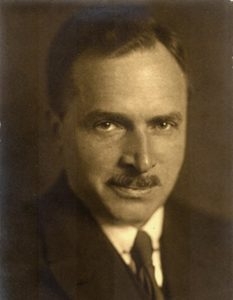 The “Right” has a rich but obscured legacy that revolts against capitalism. The “Right” is restorative, and arises when a culture-organism begins to decay. The works of Thomas Carlyle, an essay, Chartism (1840), and the book Past & Present (1843) could be the ideological basis of a true British Right, in which Carlyle condemns free trade from a conservative position. In these, he considered the supposed panacea of universal franchise and decried the debased state of the Aristocracy, which should be replaced with an “aristocracy of merit.” Carlyle stated that free trade would be a harbinger of “social revolution.” (When Karl Marx later said the same, he meant it, contrary to Carlyle, in a positive sense.) Carlyle condemned “Mammon,” materialism, and the “money nexus” of the bourgeoisie, and stated that the problems of the British were fundamentally spiritual and moral, from whence a repudiation of the money-ethos that dominated Britain should proceed. Carlyle did not write in the same stream as the British utilitarian philosophers from whom liberalism arose. He wrote in a more Occidental sense in repudiating the trade and commercial mentality that had long pervaded British thinking, politics, and foreign policy; bourgeois and Whig, as Spengler and Werner Sombart pointed out. Yockey classified Carlyle among the few British philosophers writing from an “organic” perspective of history.
The “Right” has a rich but obscured legacy that revolts against capitalism. The “Right” is restorative, and arises when a culture-organism begins to decay. The works of Thomas Carlyle, an essay, Chartism (1840), and the book Past & Present (1843) could be the ideological basis of a true British Right, in which Carlyle condemns free trade from a conservative position. In these, he considered the supposed panacea of universal franchise and decried the debased state of the Aristocracy, which should be replaced with an “aristocracy of merit.” Carlyle stated that free trade would be a harbinger of “social revolution.” (When Karl Marx later said the same, he meant it, contrary to Carlyle, in a positive sense.) Carlyle condemned “Mammon,” materialism, and the “money nexus” of the bourgeoisie, and stated that the problems of the British were fundamentally spiritual and moral, from whence a repudiation of the money-ethos that dominated Britain should proceed. Carlyle did not write in the same stream as the British utilitarian philosophers from whom liberalism arose. He wrote in a more Occidental sense in repudiating the trade and commercial mentality that had long pervaded British thinking, politics, and foreign policy; bourgeois and Whig, as Spengler and Werner Sombart pointed out. Yockey classified Carlyle among the few British philosophers writing from an “organic” perspective of history.
Marx, so far from repudiating that mentality, was intellectually in thrall to it, as Sombart and Spengler explained, and this identity of Marxism with British utilitarian and materialist philosophy resulted in a crisis of the Left during the close of the 19th century when socialist thinkers realized the inadequacy of Marx in truly rejecting capitalism and the bourgeois spirit.
Carlyle set the tone of his condemnation of capitalist Britain with the opening paragraph of Past & Present in a far more eloquent sense than that of Marx; although the Whigs masquerading as “conservatives” then and now regard such words as rabid socialism:
The condition of England, on which many pamphlets are now in the course of publication, and many thoughts unpublished are going on in every reflective head, is justly regarded as one of the most ominous, and withal one of the strangest, ever seen in this world. England is full of wealth, of multifarious produce, supply for human want in every kind; yet England is dying of inanition. With unabated bounty the land of England blooms and grows; waving with yellow harvests; thick-studded with workshops, industrial implements, with fifteen millions of workers, understood to be the strongest, the cunningest and the willingest our Earth ever had; these men are here; the work they have done, the fruit they have realized is here, abundant, exuberant on every hand of us: and behold, some baleful fiat as of Enchantment has gone forth, saying, “Touch it not, ye workers, ye master-workers, ye master-idlers; none of you can touch it, no man of you shall be the better for it; this is enchanted fruit!” On the poor workers such fiat falls first, in its rudest shape; but on the rich masterworkers too it falls; neither can the rich master-idlers, nor any richest or highest man escape, but all are like to be brought low with it, and made “poor” enough, in the money-sense or a far fataller one. [1] [1]
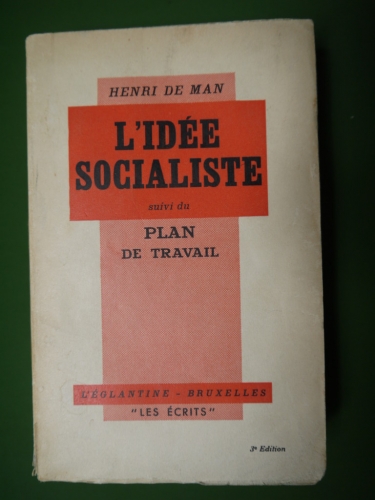 Previously, in his essay Chartism, Carlyle had appealed not to class war but to class unity among fellow Britons, high-born and low, pointing out that the ruling classes did not even realize there was a problem to be solved, much to their own danger:
Previously, in his essay Chartism, Carlyle had appealed not to class war but to class unity among fellow Britons, high-born and low, pointing out that the ruling classes did not even realize there was a problem to be solved, much to their own danger:
How an Aristocracy, in these present times and circumstances, could, if never so well disposed, set about governing the Under Class? What they should do; endeavor or attempt to do? That is even the question of questions: — the question which they have to solve; which it is our utmost function at present to tell them, lies there for solving, and must and will be solved.
Insoluble we cannot fancy it. One select class Society has furnished with wealth, intelligence, leisure, means outward and inward for governing; another huge class, furnished by Society with none of those things, declares that it must be governed: Negative stands fronting Positive; if Negative and Positive cannot unite, — it will be worse for both! Let the faculty and earnest constant effort of England combine round this matter; let it once be recognized as a vital matter. Innumerable things our Upper Classes and Lawgivers might ‘do;’ but the preliminary of all things, we must repeat, is to know that a thing must need be done.
Alas, in regard to so very many things. Laissez-faire ought partly to endeavor to cease! But in regard to poor Sanspotatoe [Irish] peasants, Trades-Union craftsmen. Chartist cotton-spinners, the time has come when it must either cease or a worse thing straightway begin, — a thing of tinder-boxes, vitriol-bottles, second-hand pistols, a visibly insupportable thing in the eyes of all. [2] [2]
In the early 20th century, Anthony Ludovici and others attempted to return the Tory Party to its origins, and his works, like those of Carlyle, remain as timeless foundations on which the Anglophone Right can return to its actual premises. The U.S. Right has its foundation in Federalism, the Hamiltonian concept of North American as a people-nation-state — as Yockey recognized — but often insists on looking to its opposite, the Jeffersonian-style Jacobinism that was enthralled by the French Revolution and would have thwarted the American states from ever becoming a nation.
Occidental Synthesis
The German economist Friedrich List, in contrast to the British philosophers, was condemning free trade from a conservative position at around the same time as Carlyle. He espoused autarchy, which he called the “national system.” This was anathema to Marx, who saw such ideologies as antithetical to the dialectical march toward communism.
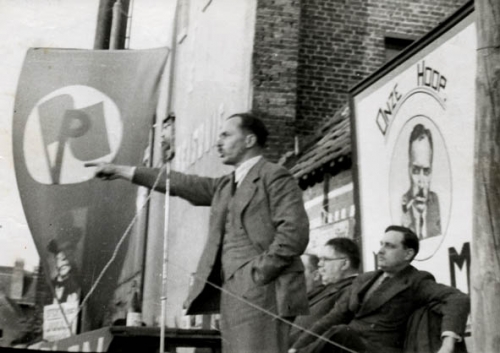
List critiqued free trade precisely on the grounds that Marx praised it; for its materialism, class divisiveness, and national dissolution. List wrote in his magnum opus:
The system of the school suffers, as we have already shown in the preceding chapters, from three main defects: firstly, from boundless cosmopolitanism, which neither recognizes the principle of nationality, nor takes into consideration the satisfaction of its interests; secondly, from a dead materialism, which everywhere regards chiefly the mere exchangeable value of things without taking into consideration the mental and political, the present and the future interests, and the productive powers of the nation; thirdly, from a disorganizing particularism and individualism, which, ignoring the nature and character of social labor and the operation of the union of powers in their higher consequences, considers private industry only as it would develop itself under a state of free interchange with society (i.e. with the whole human race) were that race not divided into separate national societies.
Between each individual and entire humanity, however, stands THE NATION, with its special language and literature, with its peculiar origin and history, with its special manners and customs, laws and institutions, with the claims of all these for existence, independence, perfection, and continuance for the future, and with its separate territory; a society which, united by a thousand ties of mind and of interests, combines itself into one independent whole, which recognizes the law of right for and within itself, and in its united character is still opposed to other societies of a similar kind in their national liberty, and consequently can only under the existing conditions of the world maintain self-existence and independence by its own power and resources. As the individual chiefly obtains by means of the nation and in the national mental culture, power of production, security, and prosperity, so is the civilization of the human race only conceivable and possible by means of the civilization and development of the individual nations. [3] [4]
This is the actual legacy of the Right. Not Locke, Mill, Spencer, Hobbes, van Mises, Hayek, or Rand.
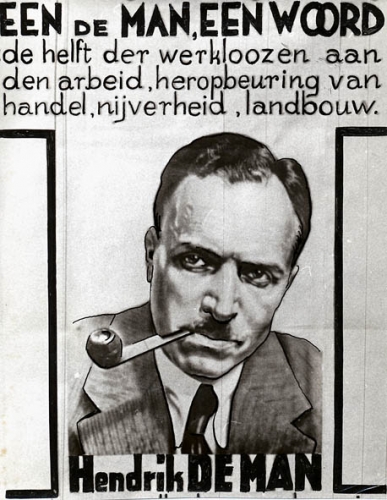
But such was the paradigm shift in politics during the Cold War, with disaffected Marxists entering en masse the ranks of the Cold Warriors against the USSR, that by the time the eminent American scholar Christopher Lasch had rejected neo-Marxism he could not find “genuine conservativism” in the USA. He could only find advocates of free trade, which he considered as destructive to tradition and the organic community as the Left. [4] [5]
What Lasch perceived in the early 1970s Oswald Spengler had seen in the aftermath of World War I: that the “scientific socialism” of Marx et al did not transcend capitalism, but reflected it, because both arose within the same Zeitgeist of British materialism and industrialism. [5] [6] As Lasch saw decades later, capitalism shares with the Left a common outlook against the traditional social order, which is the organic community. Carlyle had perceived this in 1840. After World War I, Spengler spoke of “Prussian Socialism,” and Otto Strasser of “German Socialism,” based on pre-capitalist German — and wider European — ethos. To Strasser, “socialism” is synonymous with “conservativism” because it harkens back to the pre-capitalist organic community. Marxism is within the same historical stream as liberalism, Marxism being “a doctrine whose liberal factors necessarily unfit it for the upbuilding of the socialist (i.e. conservative) future, and one whose program cannot but involve it in the decline of liberalism.” As Spengler had stated, Strasser reiterated that “this was simply due to the fact that the longing for socialism began to find expression at a time when the ego idea, liberalism, that is to say, was in the ascendant.” [6] [7]
The fundamental premise of the Right is the dichotomy described by German sociology, of Gemeinschaft versus Gesellschaft; the traditional organic community, or the “modern” doctrine of society as a contract between individuals for their material benefit. Sombart came to regard Marxism as rooted in the latter along with liberalism, as its only goal is to unite individuals for selfish material gain in the name of the proletariat, as liberalism does in the name of the bourgeoisie, which he regarded as the abysmal gulf between British bourgeois philosophy (including Marx) and that of the German (including Carlyle), which he delineated as a difference between the heroic spirit and the commercial or trader’s spirit. [7] [8]
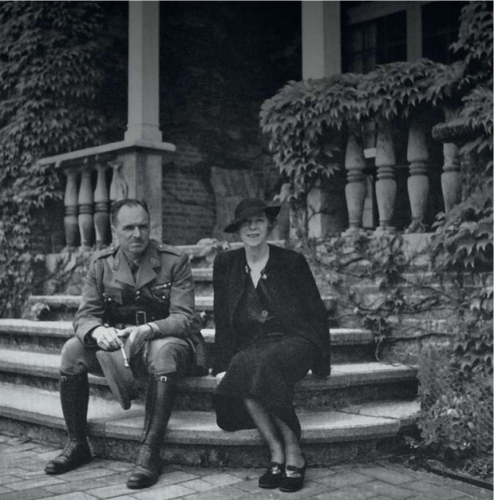
May 1940, de Man with Queen Elizabeth.
Corradini, head of the Italian Nationalist Association, stated at its first congress in 1910, nine years prior to the founding of Mussolini’s fascio, that Italy is a “proletarian nation,” and that “socialism” so far from serving the interests of the “proletarian nations” creates with its internationalism and class struggle a civil war within the social organism. [8] [9] Nine years later, at the Nationalist convention in Rome, Corradini described syndicalism as the means by which the organic social community (Gemeinschaft) can be established; creating “real collaboration, organic, unifying, and complete.” [9] [10]
When a synthesis began to arise from the late 19th century between the elements of the Right and Left, this was a process of the Left turning Right, while elements of the Right were returning to their actual — pre-capitalist — origins. The synthesis became the major “third force” in the world competing against communism and capitalism, and drawing many of the Left’s best thinkers who had already been realizing the limitations of “scientific socialism.”
Even if we consider the terms Left and Right at their most basic level — the seating arrangements of the French Assembly — it might seem odd today, when ideological terms have become obfuscated and origins forgotten, that those on the Right represented the maintenance of tradition, representing the monarchical and Catholic regime that retained a few vestiges of the traditional epoch; those on the Left stood for a bourgeois new order of laissez-faire trade. This bourgeois revolution is a primary part of the Left’s legacy, being considered as a necessary element of the dialectical process of what Marx called the “wheel of history.” [10] [11] It should be kept in mind that Marx, according to this dialectical outlook, stated that socialism could not proceed until capitalism and the bourgeoisie had replaced the vestiges of the traditional order, causing the ruination of peasants, artisans, burghers, and aristocrats. These ideas are expressed most clearly in The Communist Manifesto.
Advocacy of a return to the pre-capitalist order was vehemently denounced by Marx as “reactionism.” [11] [12] To the Rightist this is not regressive, but restorative, as the Right states that there are fundamentals that are timeless, and one might say emanating from an axis; while the “progress” of liberalism and “scientific socialism” is destructive fallacy. [12] [13] Hence, the Right is literally a conservative revolution insofar as “revolution” implies a return to origins. It also means that the liberal-capitalist order requires a complete overturn to restore those origins.
Role of the Bourgeoisie
The French Revolution of 1789 was pivotal and its impact has only increased over the world. From the French Revolution arose both liberal capitalism and the Left. The Revolution abolished the vestiges of the Medieval guilds in France under the Chapelier Law of 1791. These forefathers of “scientific socialism” enacted the free market, standards of production markedly declined, and there was widespread dissatisfaction with such “liberty.” Such was the concern at this destruction of the guilds that the National Assembly in 1795 reiterated they would not be revived, and the prohibition became Article 355 of the Constitution, which meant that a constitutional amendment would be required to reverse the law. In Revolutionary France, the guild era was recalled as one of happiness and plenty. No longer with stability, fraternity (despite the ironic slogan of the Revolution: “Liberty, Equality, Fraternity”), and a higher purpose that the guilds had offered, worker unrest was widespread. The supposed peoples’ representatives expressed concern at mounting worker “insubordination.” There was prolonged debate on the reconstitution of the guilds under Napoleon Bonaparte, but ultimately the laissez-faire radicals won. [13] [14] What replaced the organic community, however debased it had become by that time, was “civil society,” and the “social contract” between individuals, or what the Declaration on the Rights of Man & of the Citizen referred to as the “general will,” enforceable in the name of freedom by death. Joseph de Maistre criticized the Enlightenment notion that a nation could be built on such legalistic artifices that fail to reflect the spirit of a nationality. Of written constitutions as nation-building instruments, he wrote:
There never has existed a free nation which had not, in its natural constitution, germs of liberty as old as itself; and no nation has ever successfully attempted to develop, by its fundamental written laws, other rights than those which existed in its natural constitution. . . . No assembly of men can give existence to a nation. An attempt of this kind ought even to be ranked among the most memorable acts of folly exceeding in folly what all the Bedlams of the world might produce most absurd and extravagant. [14] [15]
Again, with de Maistre, the contrast is between the society that is organic and that which is contractual. Today, “civil society” is regarded as the desirable norm for the entire world.
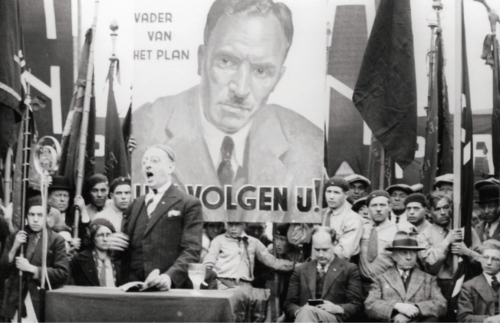
Crisis of the Left
There were Leftists who regarded the Marxist and other such forms of socialism as inadequate and historical analyses based on nothing more than economic relations as insufficient. Leftist thinkers, Sombart being notable among these, began to see “scientific socialism” — as Marx called it — as an appropriation of the bourgeois capitalist spirit for the proletariat rather than as a transcendence. World War I was the catalyst for the eruption of a discontent that had been growing within the Left. The war had proved that the patria readily transcended class conflict; that as Corradini had stated, the national struggle supplants sectionalism whether of the liberal-bourgeois or “socialist” varieties.
Professor Alfredo Rocco, Italian Minister of Justice (1925-1932), the primary architect of the future corporatist state, began politically as a socialist before joining Corradini’s Nationalist Association. He saw the strengthening of the proletariat as necessary for social cohesion. In his 1920 address to the University of Padua, inaugurating the academic year, he referred to history as one of organic social cycles of birth and decay. Within this, he develops the concept of “unceasing struggle” within every “social body” “between the principle of organization represented by the state and the principle of disintegration, represented by individuals and groups, which tend to disrupt it and lead to its decline and fall.” While the concept is Spenglerian, Rocco was drawing on the Italian philosopher Giovanni Battista Vico, who preempted Spengler by about 180 years — and here we have in Vico another forgotten philosopher of the Right.
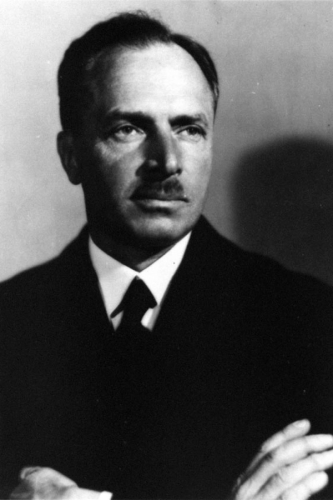 Rocco traced the disintegrative impact of liberalism and the role of the bourgeoisie in undermining the social organism — “an amorphous and disorganized mass” in an “individualistic reaction.” The doctrine was provided by the Salon intelligentsia espousing an imaginary “natural law” and by the Encyclopaedists, “and it came to a head politically in the explosion of the French Revolution.” Faced with the reality of governing and of foreign wars, the French revolutionary regime soon had to reimpose the authority of the state, culminating in the genius of Napoleon. Following this epoch there arose again bourgeois liberalism with its atomistic “liberty.” Rocco cogently defines the liberal regime in describing the situation that arose from the tumults of the 19th century:
Rocco traced the disintegrative impact of liberalism and the role of the bourgeoisie in undermining the social organism — “an amorphous and disorganized mass” in an “individualistic reaction.” The doctrine was provided by the Salon intelligentsia espousing an imaginary “natural law” and by the Encyclopaedists, “and it came to a head politically in the explosion of the French Revolution.” Faced with the reality of governing and of foreign wars, the French revolutionary regime soon had to reimpose the authority of the state, culminating in the genius of Napoleon. Following this epoch there arose again bourgeois liberalism with its atomistic “liberty.” Rocco cogently defines the liberal regime in describing the situation that arose from the tumults of the 19th century:
[ind]From that time onwards, the claims of individualism knew no bounds. The masses of individuals wanted to govern the state and govern it in accordance with their own individual interests. The state, a living organism with a continuous existence over the centuries that extends beyond successive generations and as such the guardian of the imminent historical interests of the species, was turned into a monopoly to serve the individual interests of each separate generation. [15] [16]
To restore the social organism against the atomization of liberalism, Rocco urged the integration of the syndicates, or corporations as they were known in Italy since Classical Rome, as integral organs of the social body. Rocco pointed out that liberalism in the name of individual liberty had “destroyed those ancient and venerable organizations, the guilds and corporations of arts and crafts,” which were decreed as abolished on the night of August 4th, 1789 by the French National Assembly, and in the subsequent law of August 14th — 17th 1791. In Italy, the ban was soon lifted, but the corporations did not regain their standing. “Yet professional organization or syndicalism, as it is normally known, or corporatism, to use the more traditional Italian word, is a natural and irrepressible phenomenon to be found in every age. It existed in Greece as well as in Rome, and in the Middle Ages as in modern times.” The disjunction and indeed animosity that had emerged between artisan and owner under modern capitalism could be reconciled within corporatism.
Many Leftists, just as much within the victor states as the defeated, saw the war as a “defeat of socialism.” Lanzillo, a syndicalist on the staff of Mussolini’s socialist newspaper Popolo d’Italia from 1914, wrote in his book The Defeat of Socialism that contrary to socialist expectations, the proletariat of every nation eagerly fought for their national, not international, class interests. “Socialism based its arguments on the dialectical opposition of interests within individual countries, and war showed the possibility of reconciling those interests in the will to defend by force of arms a common heritage and common ideals.” [16] [17] This echoes Sombart’s 1915 work; although Sombart insisted that the “spirit” was uniquely “German,” after the war, it became universal among those who yearned for something more than a return to the decaying pre-war order.
Hendrik de Man and Socialism
Hendrik de Man, leader of the Belgian Workers Party, went so far as to initially cooperate with the German occupation during World War II, seeing it as a blow at the bourgeois spirit of the prior century. Despite this, de Man is still regarded as an important theorist of socialism. His “neosocialism,” also known as “planism,” [17] [19] is a significant ideological development among the Francophone Left. De Man was among the leading Socialists of Europe, having worked with Rosa Luxemburg [20], Karl Liebnecht, Karl Kautsky, and Leon Trotsky [21]. After service in World War I he visited the Soviet Union, lived in Washington, and worked as a professor of economics at the University of Frankfurt.
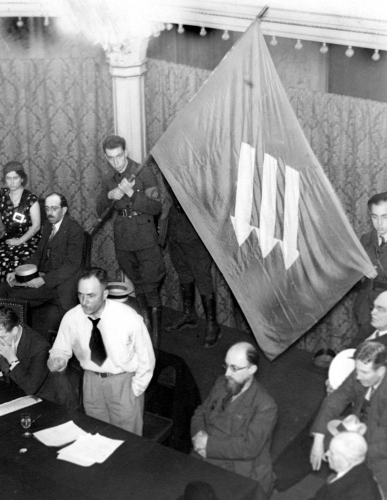
Marxism, de Man stated, reduces man “to the level of a mere object among the objects of his environment, and these external historical ‘relationships’ are held to determine his volitions and to decide his objectives.” Like many socialists who rejected Marx, World War I was a seminal event for de Man. He wrote in The Psychology of Marxian Socialism:
The war, in which I participated as a Belgian volunteer, shook my Marxist faith to its foundations. It is war-time experience which entitles me to say that my book has been written with blood, though I cannot myself be certain that I have been able to transform that blood into spirit. The conflict of motives whose upshot was that I, an ardent antimilitarist and internationalist, felt it my duty to take up arms against Germany; my disillusionment at the collapse of the International; the daily demonstration of the instinctive nature of mass impulses thanks to which even socialist members of the working class had their minds poisoned with the virus of nationalist hatred; my growing estrangement from most of my sometime Marxist associates, who went over to the bolshevik camp — thanks to all these influences conjoined, I was racked with doubts and scruples whose echoes will be heard in this book. [18] [22]
After the First World War, he withdrew from politics for several years to reflect on his thoughts and life. He conceded that what was required was not merely to “revise” or “adapt” Marxism, but to liquidate it. [19] [23]
In France, Socialist Party leader Marcel Déat, whose “neosocialism” was significantly influenced by de Man, anarcho-syndicalist Georges Valois, and Communist Party eminence Jacques Doriot came to such conclusions. The “British Fascism” of Sir Oswald Mosley had its programmatic origins in his days as a Labour Minister, and the fundamentals remained. Of this post-war situation for socialists, de Man stated:
It is not surprising that socialism is in the throes of a spiritual crisis. The world war has led to so many social and political transformations that all parties and all ideological movements have had to undergo modification in one direction or another, in order to adapt themselves to the new situation. Such changes cannot be effected without internal frictions; they are always attended by growing pains; they denote a doctrinal crisis. [20] [24]
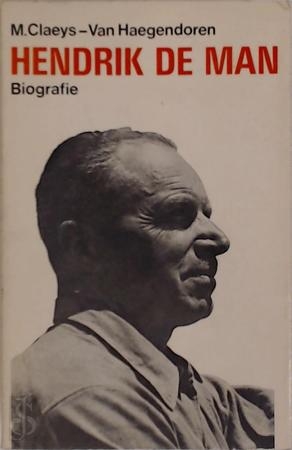 Marxism remained “rooted in the philosophical theories that were dominant during the middle decades of the nineteenth century, theories which may provisionally be summarised in the catchwords determinism, causal mechanism, historicism, rationalism, and economic hedonism.” [21] [25] So far from the bourgeoisie being increasingly proletarianized due to the crisis of capitalism, as Marx had predicted in The Communist Manifesto, de Man saw that “the working class is tending to accept bourgeois standards and to adopt a bourgeois culture.” [22] [26] “In the last analysis, the reason why the bourgeoisie is the upper class to-day, is that everyone would like to be a bourgeois.” [23] [27] Today more than ever it is apparent that the historical dialectic has not unfolded in the manner Marx predicted. The “cult of the masses” was an invention of bourgeois intellectuals including Marx, who were remote from the masses; [24] [28] a “relapse into the naivety of the outworn primitive democratic adoration of the crowd.” [25] [29]
Marxism remained “rooted in the philosophical theories that were dominant during the middle decades of the nineteenth century, theories which may provisionally be summarised in the catchwords determinism, causal mechanism, historicism, rationalism, and economic hedonism.” [21] [25] So far from the bourgeoisie being increasingly proletarianized due to the crisis of capitalism, as Marx had predicted in The Communist Manifesto, de Man saw that “the working class is tending to accept bourgeois standards and to adopt a bourgeois culture.” [22] [26] “In the last analysis, the reason why the bourgeoisie is the upper class to-day, is that everyone would like to be a bourgeois.” [23] [27] Today more than ever it is apparent that the historical dialectic has not unfolded in the manner Marx predicted. The “cult of the masses” was an invention of bourgeois intellectuals including Marx, who were remote from the masses; [24] [28] a “relapse into the naivety of the outworn primitive democratic adoration of the crowd.” [25] [29]
In comparing the pre-capitalist guild era of the Medieval epoch with the capitalist era of production, de Man pointed out that
The essence of the charge brought by Marxism against capitalism is that the capitalist method of production has divorced the producers from the means of production. In actual fact, capitalism has done something much more serious; it has divorced the producer from production, the worker from the work. In this way, it has engendered a distaste for work which is often increased rather than diminished by an improvement in the material circumstances of life, and cannot be cured by any mere change in property relationships.
Especially conspicuous is the contrast between the industrial worker of to-day and the Medieval artisan as a guildsman. The handicraftsman of the Middle Ages might or might not be the owner of his house, his workshop, or his booth; his position might be a good one, financially speaking, or the reverse. But at least he was master of his own work. . .
The craftsman of the Middle Ages took delight in his work; he lived in his work; for him, his work was a means of self-expression. [26] [30]
De Man dealt directly with the workers, and often through his own lack of understanding was taught many lessons on the workers’ ethos that would be regarded as “reactionism” (as Marx puts it in The Communist Manifesto) by those on the Left too imbued with the bourgeois outlook to understand. At one such point, de Man alludes to the personal attachment tradesmen have to their own old toolboxes, an ethos that goes beyond the comprehension of Marxist doctrine (and an attitude that one can still observe among tradesmen and apprentices). [27] [31] He stated that Marxist theories about working-class solidarity lacked an ethos, and were mechanistic. They sought to build something merely on the basis of modes of production. This is the “economic man,” the “hedonist” and “egoist.” [28] [32] It is the same spirit of the merchant referred to by Sombart. The desire for solidarity was born not from this bourgeois outlook, but from the instinct that had existed during the Medieval era; of Christian ethos; that of “craft fraternity” defended by the guilds. [29] [33] Socialism, said de Man, should aim to revive a social ethos that was instinctive [organic], not mechanistic. [30] [34] He alluded to two postulants that serve as an ethical basis for this “new socialism”: “1. Vital values are higher than material values; and of vital values, spiritual values are the highest. 2. The motives of community sentiment are higher than the motives of personal power and personal acquisition.” [31] [35] Again, Sombart had said the same in his wartime appeal.
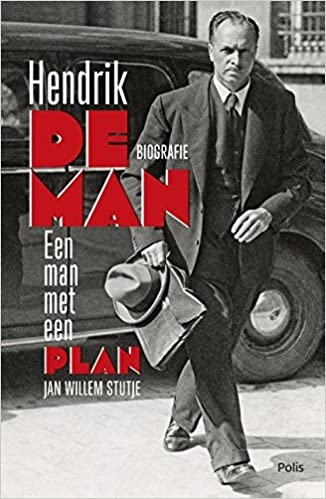 An additional factor in the fallacy of Marxism was that especially since the First World War the proletariat had become more national and less international. [32] [36] Machinery and modes of production might indeed be international and what is today called globalization shows that capital is an internationalizing tendency, as Marx approvingly predicted. But people are more than their modes of production. [33] [37]
An additional factor in the fallacy of Marxism was that especially since the First World War the proletariat had become more national and less international. [32] [36] Machinery and modes of production might indeed be international and what is today called globalization shows that capital is an internationalizing tendency, as Marx approvingly predicted. But people are more than their modes of production. [33] [37]
De Man saw the socialist movement as intrinsically national and the proletariat as more than a globule of putty to be molded for the purposes of production, whether by liberalism or Marxism:
The French revolution, which was the supreme struggle on the continent of Europe for the realization of the political demands of the bourgeoisie, was (so thought the revolutionists) to culminate in a universal rising of the peoples against the despots, and to make the Declaration of the Rights of Man the constitution of the whole human race. The Goddess of Reason, in whose honor the revolution set up its altars, was to become the deity of all mankind. [34] [38]
National sentiment is an integral part of the emotional content of the socialism of each country. It grows in strength in proportion as the lot of the working masses of any country is more closely connected with the lot of that country itself; in proportion too as the masses have won for themselves a larger place in the community of national civilization. At bottom, this partial absorption of socialist sentiment by national sentiment need not surprise us. We have merely to recognize that it is the return of a sentiment to its source. [Emphasis added]. Socialism itself is the product of the interaction between a given moral sentiment and a given social environment. It is not only the social environment which has a national character. The other factor, likewise, the moral sentiment, has primarily, in different peoples, a peculiar tinge, derived from a peculiar national past. [35] [39]
Hence, de Man recognized that socialism and tradition (that is “the Right”) are, so far from being antithetical, intrinsic each to the other.
Hendrik de Man was condemned as a “collaborator” after World War II and settled in exile in Switzerland. Like others condemned “traitors” and “collaborators,” he had remained in his country during the occupation to try and make something positive from the situation. When the German military occupied Belgium in June 1940, de Man issued a manifesto to the Belgian Workers Party stating that “For the working classes and for socialism, this collapse of a decrepit world, far from being a disaster, is a deliverance.” He had been Minister of Public Works (1934-1935) and of Finance (1936-1938). The failure to see his “Plan” implemented is reminiscent of a similar situation faced by Sir Oswald Mosley with his “Mosley Memorandum” to the Labour Government on the unemployment problem. Like Mosley, he saw that plutocracy could only be defeated by strong government action.
 While other Belgian politicians fled the country and formed a government-in-exile, de Man served as de facto Prime Minister for over a year. In 1941, he co-founded with other trade union leaders the Union des Travailleurs Manuels et Intellectuels, which was intended as the basis of a corporatist state above party politics. However, German occupation prevented this from becoming a truly effective organization.
While other Belgian politicians fled the country and formed a government-in-exile, de Man served as de facto Prime Minister for over a year. In 1941, he co-founded with other trade union leaders the Union des Travailleurs Manuels et Intellectuels, which was intended as the basis of a corporatist state above party politics. However, German occupation prevented this from becoming a truly effective organization.
De Man soon fell out with the occupation authorities. Although remaining the primary adviser to King Leopold III and the Queen Mother, he left Belgium in 1941 after talks with the Reich failed to reach a satisfactory conclusion for Belgian sovereignty and he was banned by the occupation authorities from public speaking. He first lived in France, then Switzerland until his death in 1953.
If you want to support Counter-Currents, please send us a donation by going to our Entropy page [40] and selecting “send paid chat.” Entropy allows you to donate any amount from $3 and up. All comments will be read and discussed in the next episode of Counter-Currents Radio, which airs every weekend on DLive [41].
Don’t forget to sign up [42] for the twice-monthly email Counter-Currents Newsletter for exclusive content, offers, and news.
Notes
[1] [43] Thomas Carlyle, Past & Present (1843), Book I: “Proem,” Chapter I: “Midas.”
[2] [44] Thomas Carlyle, Chartism (1840), Chapter VII: “Not Laissez-Faire.”
[3] [45] Friedrich List, The National System of Political Economy (1841), Chapter XV: “Nationality and the Economy of the Nation.”
[4] [46] Christopher Lasch, “What’s Wrong with the Right? [47]” Tikkun, No. 1, 1987.
[5] [48] Spengler in The Decline of the West, The Hour of Decision, and Prussianism and Socialism. See for the latter Spengler: Prussianism Socialism and Other Essays (London: Black House Publishing, 2018).
[6] [49] Otto Strasser, Germany Tomorrow (London: Jonathan Cape, 1940), Part III: “The Structure of German Socialism” (4) Marxism, 126.
[7] [50] Werner Sombart, Händler und Helden (Merchants and Heroes, 1915). It seems likely that Spengler was influenced by this book, and Yockey, whether directly or via Spengler. But not all Germans have the “heroic spirit,” and not all British that of the “trader.” In this dichotomy, Marx reflected the “British,” Carlyle the “German”; insofar as each state represented a rival Zeitgeist which conflicted in two world wars. It seems reasonable to conclude that the “trader” spirit, in defeating the “heroic,” was taken over from Britain by the USA after World War II.
[8] [51] Enrico Corradini, The Principles of Nationalism, Report to the First Nationalist Congress, Florence, December 3, 1910.
[9] [52] Corradini, Nationalism and the Syndicates, Rome, March 16, 1919.
[10] [53] Marx’s “wheel of history,” so far from being in the traditional sense, where a culture revolves metaphorically on an axis, in the Evolian sense, proceeds in a straight line called “progress,” until falling into the abyss.
[11] [54] Karl Marx, The Communist Manifesto (1848), “Bourgeois and Proletarians.”
[12] [55] Evola referred to the axial basis of civilization in Revolt Against the Modern World; Yeats rendered the idea poetically in “The Second Coming” (1920).
[13] [56] See Michael P. Fitzsimmons, “The Debate on Guilds under Napoleon,” The Proceedings of the Western Society for French History, Vol. 36, 2008.
[14] [57] Joseph de Maistre, Essay on the Generative Principle of Constitutions (1847), Preface.
[15] [58] Alfredo Rocco, The Syndicates & the Crisis within the State, Padua, November 15, 1920.
[ [43]16] [59] Agostino Lanzillo, The Defeat of Socialism (Rome, 1918), Preface.
[17] [60] Named after H. de Man’s “Labor Plan” of 1933 to deal with unemployment.
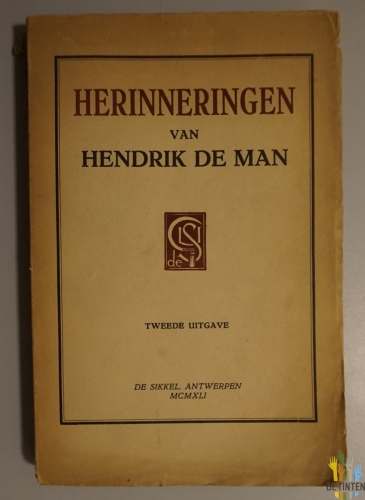
[18] [61] Hendrik de Man, The Psychology of Marxian Socialism (New Brunswick, New Jersey: Transaction Books, 1988 (1928)), 12.
[19] [62] Ibid., 14.
[20] [63] Ibid., 19.
[21] [64] Ibid., 23.
[22] [65] Ibid., 25.
[23] [66] Ibid., 103.
[24] [67] Ibid., 35.
[25] [68] Ibid., 36.
[26] [69] Ibid., 65-67.
[27] [70] Ibid., 75.
[28] [71] Ibid., 127.
[29] [72] Ibid.
[30] [73] Ibid., 131.
[31] [74] Ibid., 189.
[32] [75] Ibid., 303.
[33] [76] Ibid., 313.
[34] [77] Ibid., 321. This cult of the Goddess of Reason was intended as a literal civic religion in Jacobin France to replace Catholicism.
[35] [78] Ibid., 325-326.
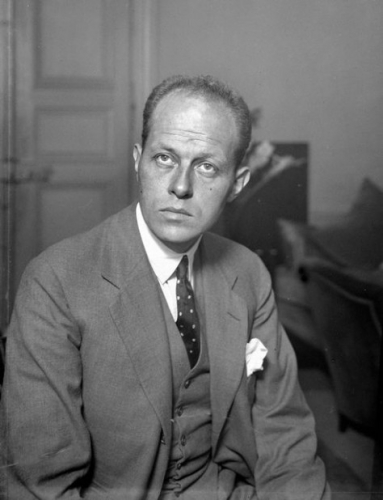
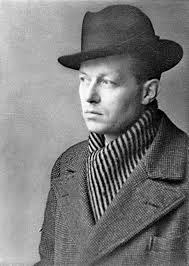 L’optimisme d’un désespéré
L’optimisme d’un désespéré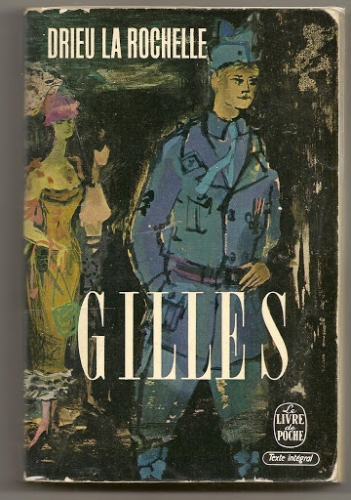



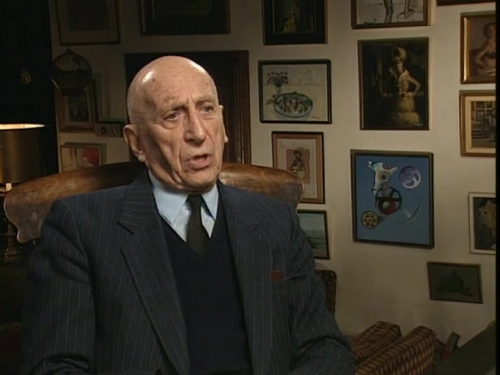
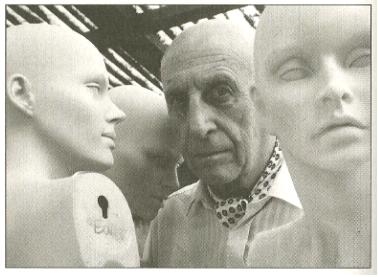
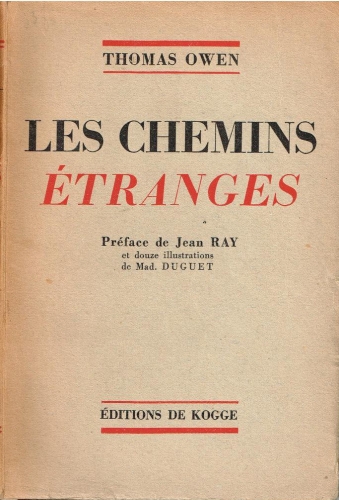

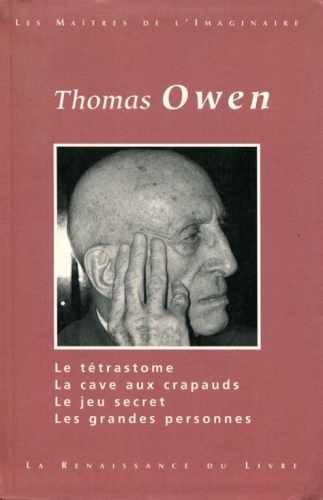

 del.icio.us
del.icio.us
 Digg
Digg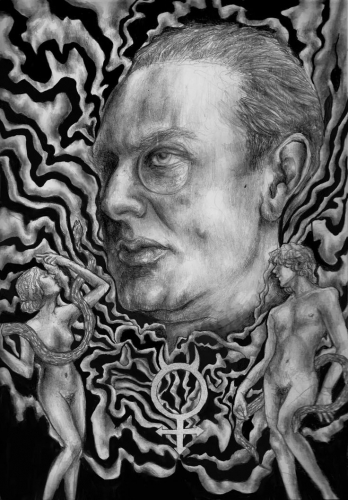

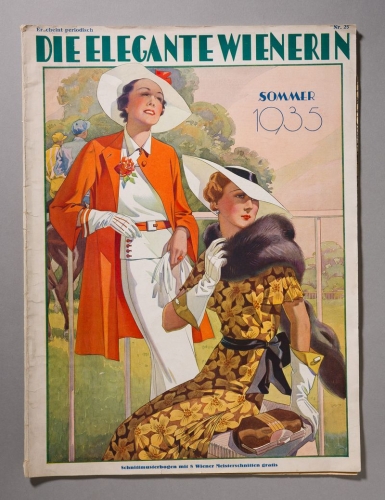

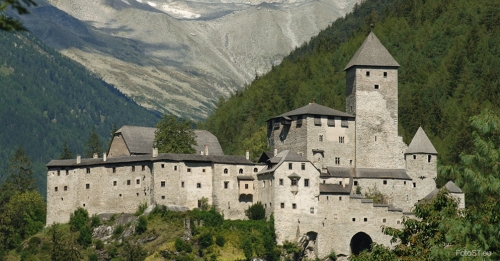
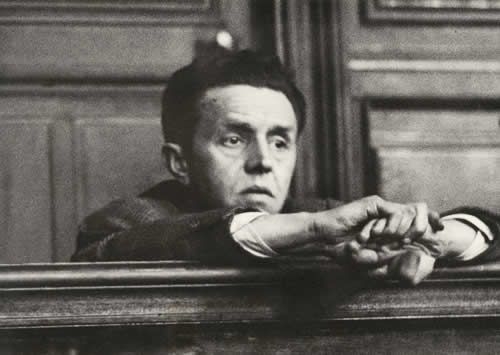
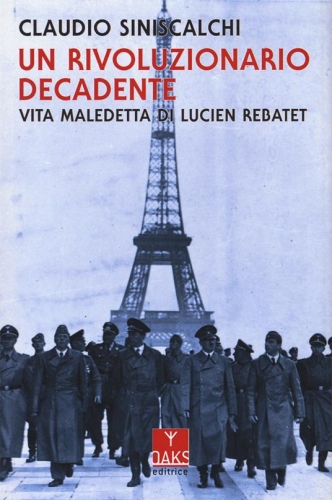
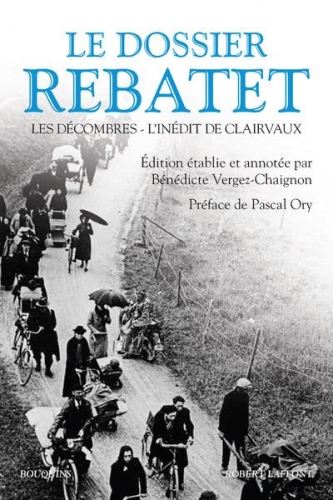 En présentant l'itinéraire intellectuel et politique de Rebatet, Siniscalchi dresse un tableau organique du monde intellectuel varié et vivant du "fascisme" français, en discutant des relations qui existaient entre les principaux interprètes de cette faction intellectuelle et politique. Il parvient ainsi à des jugements équilibrés, conformes aux exigences de la recherche historique. Il précise notamment comment le rapprochement de Rebatet avec l'Allemagne nationale-socialiste s'explique par la conviction profonde que les ennemis de la patrie sont "intérieurs" et se reconnaissent dans : "les Maghrébins, les Noirs, les Jaunes, les Russes anciens et nouveaux, les mineurs polonais, les Italiens" (p. 23), venus en France pour les raisons les plus disparates. Ces catégories seront bientôt remplacées par l'ennemi par excellence, le Juif. Les révolutionnaires et les juifs qui ont quitté l'Allemagne après 1933 ont rencontré les exilés antifascistes italiens et ont formé l'Internationale antifasciste. Celle-ci devait être combattue, selon l'auteur, par l'internationale fasciste.
En présentant l'itinéraire intellectuel et politique de Rebatet, Siniscalchi dresse un tableau organique du monde intellectuel varié et vivant du "fascisme" français, en discutant des relations qui existaient entre les principaux interprètes de cette faction intellectuelle et politique. Il parvient ainsi à des jugements équilibrés, conformes aux exigences de la recherche historique. Il précise notamment comment le rapprochement de Rebatet avec l'Allemagne nationale-socialiste s'explique par la conviction profonde que les ennemis de la patrie sont "intérieurs" et se reconnaissent dans : "les Maghrébins, les Noirs, les Jaunes, les Russes anciens et nouveaux, les mineurs polonais, les Italiens" (p. 23), venus en France pour les raisons les plus disparates. Ces catégories seront bientôt remplacées par l'ennemi par excellence, le Juif. Les révolutionnaires et les juifs qui ont quitté l'Allemagne après 1933 ont rencontré les exilés antifascistes italiens et ont formé l'Internationale antifasciste. Celle-ci devait être combattue, selon l'auteur, par l'internationale fasciste.

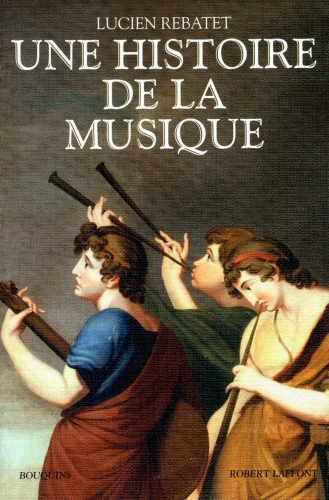
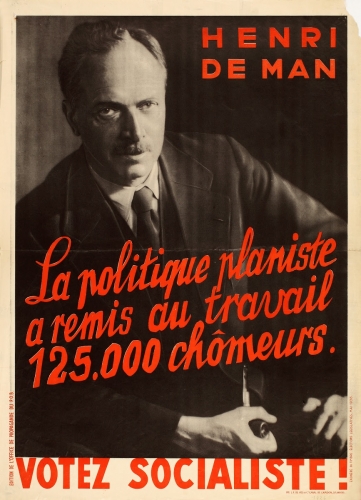

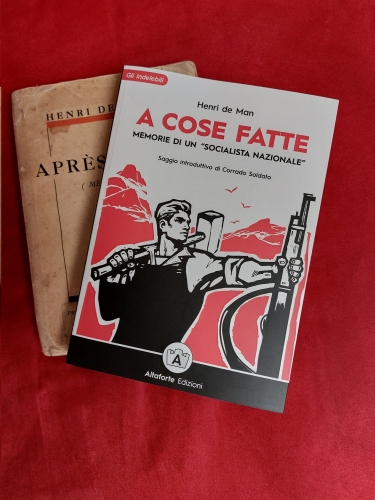
 Pour de Man, repenser le socialisme et dépasser le marxisme est avant tout une façon de sauver le socialisme lui-même, de l'adapter à son temps et de rompre avec les dogmes et l'immobilisme d'un mouvement ouvrier qui semblait s'être essoufflé. Le tournant fondamental est la Première Guerre mondiale : "Pour moi plus que pour quiconque, août 1914 a signifié un effondrement total. Ma foi marxiste, ma foi internationaliste, ma foi antimilitariste, ont été mises au pilori par les événements".
Pour de Man, repenser le socialisme et dépasser le marxisme est avant tout une façon de sauver le socialisme lui-même, de l'adapter à son temps et de rompre avec les dogmes et l'immobilisme d'un mouvement ouvrier qui semblait s'être essoufflé. Le tournant fondamental est la Première Guerre mondiale : "Pour moi plus que pour quiconque, août 1914 a signifié un effondrement total. Ma foi marxiste, ma foi internationaliste, ma foi antimilitariste, ont été mises au pilori par les événements".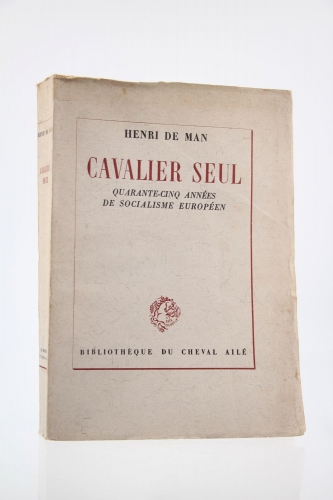 Ce fossé se creuse avec la crise économique des années 30, à laquelle les dirigeants du POB/BWP ne sont absolument pas préparés. A l'idée de la lutte des classes entre le capital et le prolétariat, de Man substitue celle de la lutte entre un mur d'argent et un front du travail: "A la place de la lutte des classes entre capitalistes et ouvriers, le front commun de toutes les classes sociales productives contre les puissances parasites de l'argent". Par mur de l'argent, il faut entendre "le monopole privé du crédit, qui subordonne l'activité économique à la recherche du profit privé, au lieu de rechercher la satisfaction des besoins collectifs". Ce à quoi de Man tente de répondre par la "nationalisation du crédit, comme principal instrument d'une économie orientée vers l'augmentation du pouvoir d'achat des masses populaires, afin de garantir à tous un travail utile et rémunérateur et d'accroître le bien-être général".
Ce fossé se creuse avec la crise économique des années 30, à laquelle les dirigeants du POB/BWP ne sont absolument pas préparés. A l'idée de la lutte des classes entre le capital et le prolétariat, de Man substitue celle de la lutte entre un mur d'argent et un front du travail: "A la place de la lutte des classes entre capitalistes et ouvriers, le front commun de toutes les classes sociales productives contre les puissances parasites de l'argent". Par mur de l'argent, il faut entendre "le monopole privé du crédit, qui subordonne l'activité économique à la recherche du profit privé, au lieu de rechercher la satisfaction des besoins collectifs". Ce à quoi de Man tente de répondre par la "nationalisation du crédit, comme principal instrument d'une économie orientée vers l'augmentation du pouvoir d'achat des masses populaires, afin de garantir à tous un travail utile et rémunérateur et d'accroître le bien-être général".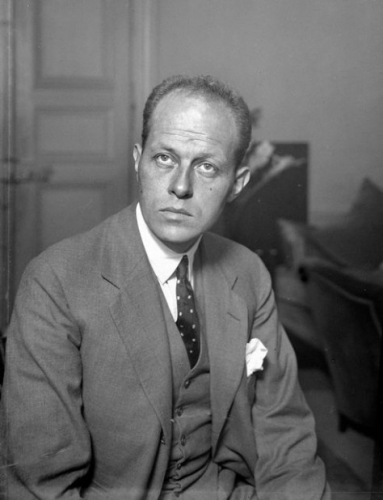
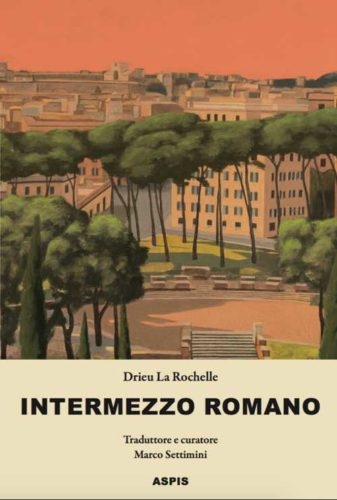 Nous voudrions terminer ici en disant à nos contemporains: vous ne méritez pas Pierre Drieu La Rochelle, vous ne devriez pas le lire du tout, vous ne pourriez pas vous le permettre ne serait-ce que par un manque de bon goût généralisé. A tel point que certains auteurs doivent être d'autant plus aimés et soignés qu'ils sont morts, mérités ou inévitablement perdus : certains écrivains parviennent à nous faire croire que nous leur ressemblons, alors que nous ne nous rendons pas compte que nous les avons naïvement pris pour modèle. Un mimétisme peu concluant, pourrait-on dire, un simulacre perdant. Ils ont soigneusement préparé le banquet de notre échec de suiveurs occasionnels, un repas tristement émulatif, nous laissant sans autres mots: ils les avaient déjà écrits, bien mieux. Que peut-on ajouter, si ce n'est de l'admiration? Certains romanciers conservent même le privilège de nous juger, page après page, comme des lecteurs inadéquats : nous méritons tous que l'on nous crache au visage, nous, aveugles ou analphabètes, tant notre nullité verbeuse est insignifiante, cette communication vide de tout ce qui est impérieux ou important, un amusement moderne et rustre. S'il existe une rare possibilité de perfection dans la vie d'un homme, elle consiste précisément dans la fatalité brûlante de l'adhésion à un destin, ou plutôt à la Destinée, même si c'est le destin tragique d'un suicidé traqué par le piège qu'il s'est créé, mais là, près de la corde au cou ou du poison à avaler, naturellement élégant, convenablement équipé d'une garde-robe raffinée, même si elle sera complètement inutile le lendemain. Ce qui compte, c'est le geste, quelle que soit l'occasion, et qu'il soit bien fait.
Nous voudrions terminer ici en disant à nos contemporains: vous ne méritez pas Pierre Drieu La Rochelle, vous ne devriez pas le lire du tout, vous ne pourriez pas vous le permettre ne serait-ce que par un manque de bon goût généralisé. A tel point que certains auteurs doivent être d'autant plus aimés et soignés qu'ils sont morts, mérités ou inévitablement perdus : certains écrivains parviennent à nous faire croire que nous leur ressemblons, alors que nous ne nous rendons pas compte que nous les avons naïvement pris pour modèle. Un mimétisme peu concluant, pourrait-on dire, un simulacre perdant. Ils ont soigneusement préparé le banquet de notre échec de suiveurs occasionnels, un repas tristement émulatif, nous laissant sans autres mots: ils les avaient déjà écrits, bien mieux. Que peut-on ajouter, si ce n'est de l'admiration? Certains romanciers conservent même le privilège de nous juger, page après page, comme des lecteurs inadéquats : nous méritons tous que l'on nous crache au visage, nous, aveugles ou analphabètes, tant notre nullité verbeuse est insignifiante, cette communication vide de tout ce qui est impérieux ou important, un amusement moderne et rustre. S'il existe une rare possibilité de perfection dans la vie d'un homme, elle consiste précisément dans la fatalité brûlante de l'adhésion à un destin, ou plutôt à la Destinée, même si c'est le destin tragique d'un suicidé traqué par le piège qu'il s'est créé, mais là, près de la corde au cou ou du poison à avaler, naturellement élégant, convenablement équipé d'une garde-robe raffinée, même si elle sera complètement inutile le lendemain. Ce qui compte, c'est le geste, quelle que soit l'occasion, et qu'il soit bien fait. 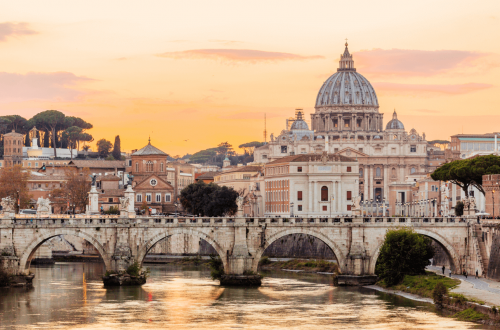
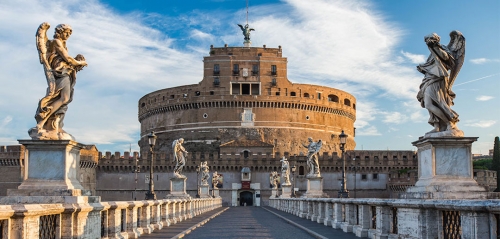
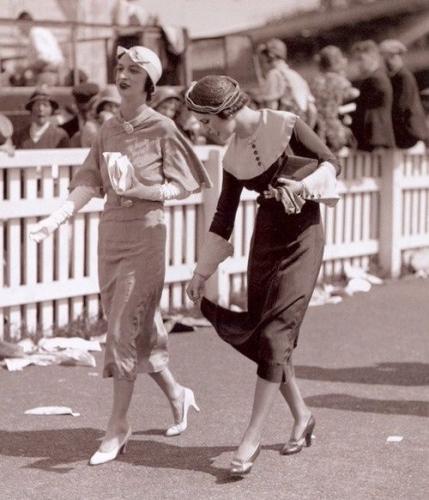


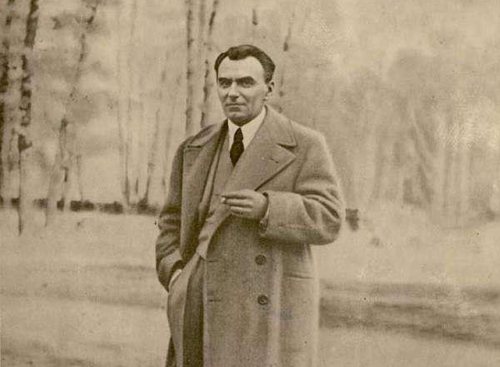
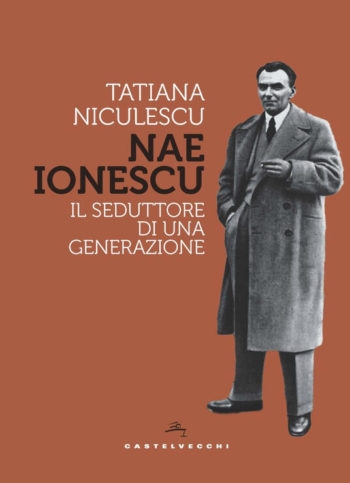 Dans la culture du 20e siècle, la Roumanie a joué un rôle central. L'étude et la recherche étaient les domaines dans lesquels les jeunes intellectuels de ce pays tentaient de surmonter la marginalité existentielle résultant du fait d'être né dans une province "orientale". Pensez, parmi beaucoup d'autres, à Cioran, Eliade, Noica, Vulcănescu, pour ne citer que quelques exemples exemples éminents de la " jeune génération " formée à l'école de Nae Ionescu, qui était considéré comme un maître incontesté par ces jeunes érudits précoces, à l'esprit très vif. Une biographie reconstituant la vie intellectuelle de Ionescu est désormais disponible pour les lecteurs italiens. Il est dû à la plume de Tatiana Niculescu, Nae Iounescu. Il seduttore di una generazione (= Le séducteur d'une génération), qui vient de paraître dans le catalogue de la maison Castelvecchi, édité par Horia C. Cicortaş et Igor Tavilla (pour les commandes : 06/8412007 ; info@castelvecchieditore.com, pp. 240, euro 22.00).
Dans la culture du 20e siècle, la Roumanie a joué un rôle central. L'étude et la recherche étaient les domaines dans lesquels les jeunes intellectuels de ce pays tentaient de surmonter la marginalité existentielle résultant du fait d'être né dans une province "orientale". Pensez, parmi beaucoup d'autres, à Cioran, Eliade, Noica, Vulcănescu, pour ne citer que quelques exemples exemples éminents de la " jeune génération " formée à l'école de Nae Ionescu, qui était considéré comme un maître incontesté par ces jeunes érudits précoces, à l'esprit très vif. Une biographie reconstituant la vie intellectuelle de Ionescu est désormais disponible pour les lecteurs italiens. Il est dû à la plume de Tatiana Niculescu, Nae Iounescu. Il seduttore di una generazione (= Le séducteur d'une génération), qui vient de paraître dans le catalogue de la maison Castelvecchi, édité par Horia C. Cicortaş et Igor Tavilla (pour les commandes : 06/8412007 ; info@castelvecchieditore.com, pp. 240, euro 22.00).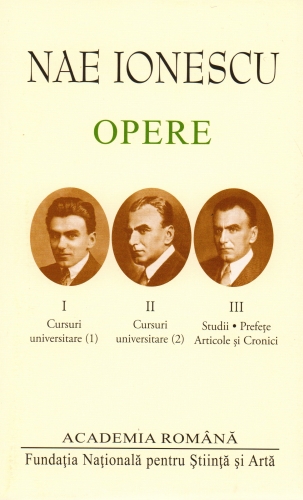
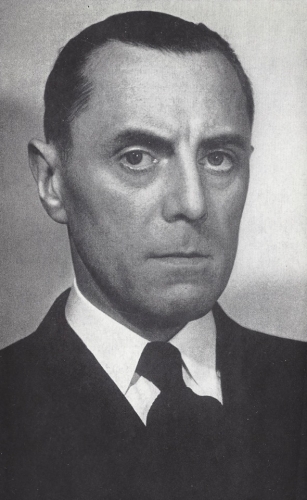
 Le numéro 24 (année 2020) de la publication annuelle en néerlandais du Centre d’étude Joris Van Severen (1) consacre un article aux relations entretenues par Pierre Nothomb (1887-1966), fer de lance du nationalisme belge, et Joris Van Severen (1894-1940), au départ nationaliste flamand mais qui a évolué de l’idée d’une union entre les Pays Bas et la Flandre vers celle du regroupement, au sein d’un nouvel État, des Pays Bas, de l’ensemble de la Belgique, du Luxembourg et de la Flandre française, sous la direction du Roi Léopold III.
Le numéro 24 (année 2020) de la publication annuelle en néerlandais du Centre d’étude Joris Van Severen (1) consacre un article aux relations entretenues par Pierre Nothomb (1887-1966), fer de lance du nationalisme belge, et Joris Van Severen (1894-1940), au départ nationaliste flamand mais qui a évolué de l’idée d’une union entre les Pays Bas et la Flandre vers celle du regroupement, au sein d’un nouvel État, des Pays Bas, de l’ensemble de la Belgique, du Luxembourg et de la Flandre française, sous la direction du Roi Léopold III.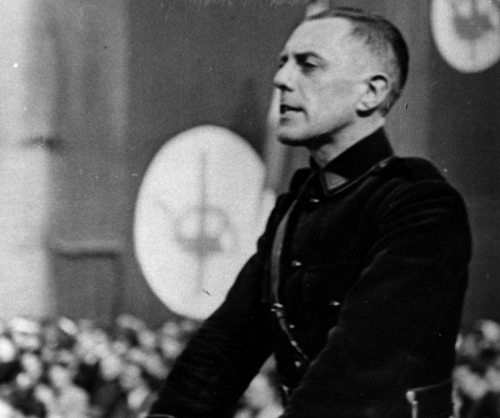
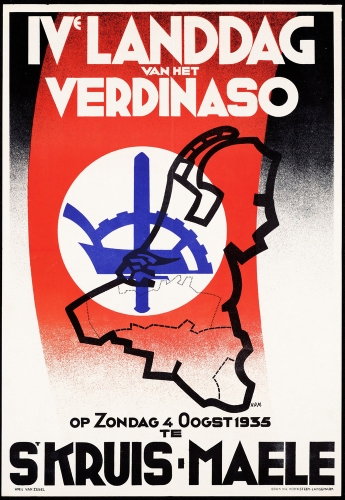
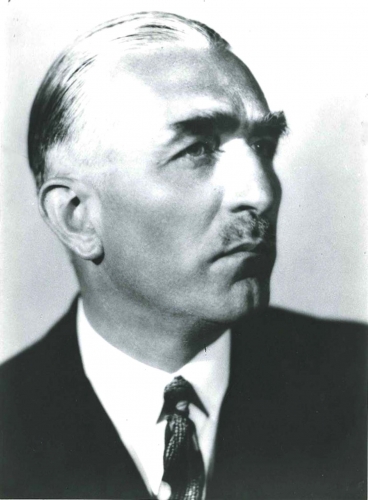
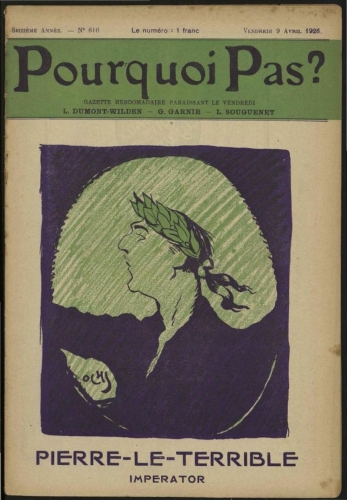

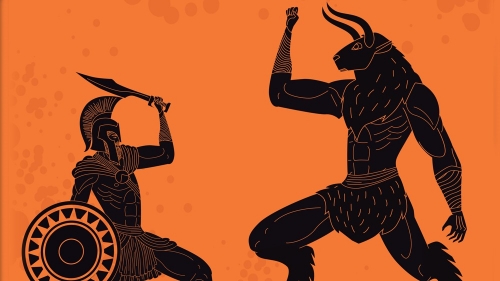
 Pour se procurer le livre, voici le lien vers le site de la nouvelle librairie :
Pour se procurer le livre, voici le lien vers le site de la nouvelle librairie : 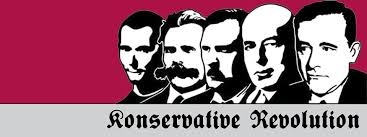
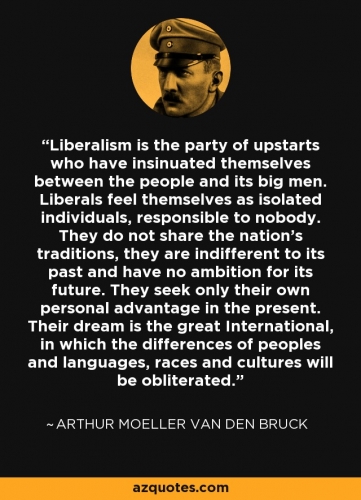

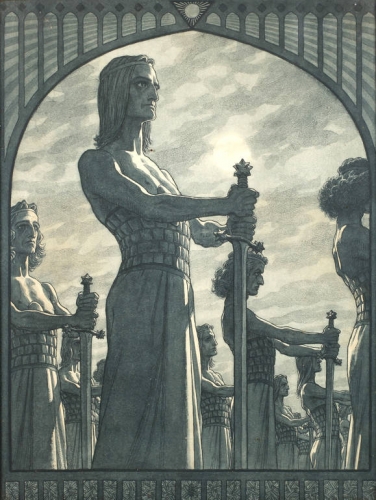
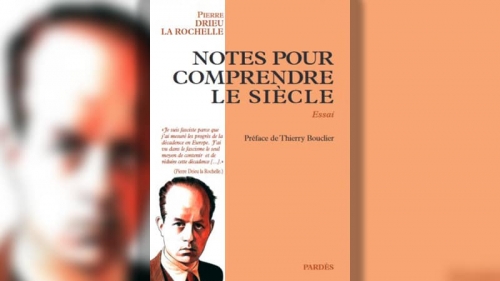
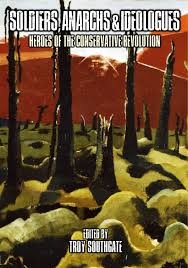
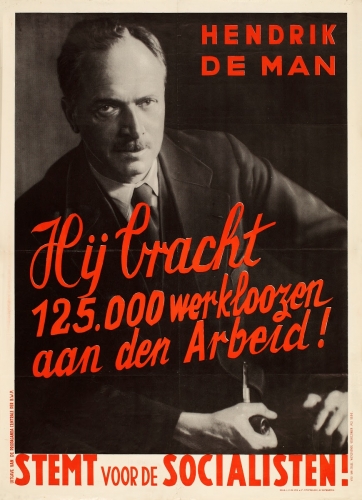
 The “Right” has a rich but obscured legacy that revolts against capitalism. The “Right” is restorative, and arises when a culture-organism begins to decay. The works of Thomas Carlyle, an essay, Chartism (1840), and the book Past & Present (1843) could be the ideological basis of a true British Right, in which Carlyle condemns free trade from a conservative position. In these, he considered the supposed panacea of universal franchise and decried the debased state of the Aristocracy, which should be replaced with an “aristocracy of merit.” Carlyle stated that free trade would be a harbinger of “social revolution.” (When Karl Marx later said the same, he meant it, contrary to Carlyle, in a positive sense.) Carlyle condemned “Mammon,” materialism, and the “money nexus” of the bourgeoisie, and stated that the problems of the British were fundamentally spiritual and moral, from whence a repudiation of the money-ethos that dominated Britain should proceed. Carlyle did not write in the same stream as the British utilitarian philosophers from whom liberalism arose. He wrote in a more Occidental sense in repudiating the trade and commercial mentality that had long pervaded British thinking, politics, and foreign policy; bourgeois and Whig, as Spengler and Werner Sombart pointed out. Yockey classified Carlyle among the few British philosophers writing from an “organic” perspective of history.
The “Right” has a rich but obscured legacy that revolts against capitalism. The “Right” is restorative, and arises when a culture-organism begins to decay. The works of Thomas Carlyle, an essay, Chartism (1840), and the book Past & Present (1843) could be the ideological basis of a true British Right, in which Carlyle condemns free trade from a conservative position. In these, he considered the supposed panacea of universal franchise and decried the debased state of the Aristocracy, which should be replaced with an “aristocracy of merit.” Carlyle stated that free trade would be a harbinger of “social revolution.” (When Karl Marx later said the same, he meant it, contrary to Carlyle, in a positive sense.) Carlyle condemned “Mammon,” materialism, and the “money nexus” of the bourgeoisie, and stated that the problems of the British were fundamentally spiritual and moral, from whence a repudiation of the money-ethos that dominated Britain should proceed. Carlyle did not write in the same stream as the British utilitarian philosophers from whom liberalism arose. He wrote in a more Occidental sense in repudiating the trade and commercial mentality that had long pervaded British thinking, politics, and foreign policy; bourgeois and Whig, as Spengler and Werner Sombart pointed out. Yockey classified Carlyle among the few British philosophers writing from an “organic” perspective of history. Previously, in his essay Chartism, Carlyle had appealed not to class war but to class unity among fellow Britons, high-born and low, pointing out that the ruling classes did not even realize there was a problem to be solved, much to their own danger:
Previously, in his essay Chartism, Carlyle had appealed not to class war but to class unity among fellow Britons, high-born and low, pointing out that the ruling classes did not even realize there was a problem to be solved, much to their own danger:



 Rocco traced the disintegrative impact of liberalism and the role of the bourgeoisie in undermining the social organism — “an amorphous and disorganized mass” in an “individualistic reaction.” The doctrine was provided by the Salon intelligentsia espousing an imaginary “natural law” and by the Encyclopaedists, “and it came to a head politically in the explosion of the French Revolution.” Faced with the reality of governing and of foreign wars, the French revolutionary regime soon had to reimpose the authority of the state, culminating in the genius of Napoleon. Following this epoch there arose again bourgeois liberalism with its atomistic “liberty.” Rocco cogently defines the liberal regime in describing the situation that arose from the tumults of the 19th century:
Rocco traced the disintegrative impact of liberalism and the role of the bourgeoisie in undermining the social organism — “an amorphous and disorganized mass” in an “individualistic reaction.” The doctrine was provided by the Salon intelligentsia espousing an imaginary “natural law” and by the Encyclopaedists, “and it came to a head politically in the explosion of the French Revolution.” Faced with the reality of governing and of foreign wars, the French revolutionary regime soon had to reimpose the authority of the state, culminating in the genius of Napoleon. Following this epoch there arose again bourgeois liberalism with its atomistic “liberty.” Rocco cogently defines the liberal regime in describing the situation that arose from the tumults of the 19th century:
 Marxism remained “rooted in the philosophical theories that were dominant during the middle decades of the nineteenth century, theories which may provisionally be summarised in the catchwords determinism, causal mechanism, historicism, rationalism, and economic hedonism.”
Marxism remained “rooted in the philosophical theories that were dominant during the middle decades of the nineteenth century, theories which may provisionally be summarised in the catchwords determinism, causal mechanism, historicism, rationalism, and economic hedonism.”  An additional factor in the fallacy of Marxism was that especially since the First World War the proletariat had become more national and less international.
An additional factor in the fallacy of Marxism was that especially since the First World War the proletariat had become more national and less international.  While other Belgian politicians fled the country and formed a government-in-exile, de Man served as de facto Prime Minister for over a year. In 1941, he co-founded with other trade union leaders the Union des Travailleurs Manuels et Intellectuels, which was intended as the basis of a corporatist state above party politics. However, German occupation prevented this from becoming a truly effective organization.
While other Belgian politicians fled the country and formed a government-in-exile, de Man served as de facto Prime Minister for over a year. In 1941, he co-founded with other trade union leaders the Union des Travailleurs Manuels et Intellectuels, which was intended as the basis of a corporatist state above party politics. However, German occupation prevented this from becoming a truly effective organization.
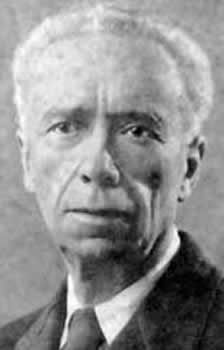



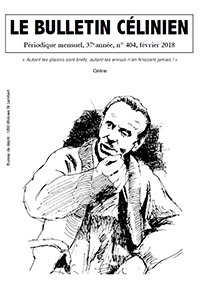 De l’utilité du conditionnel. Dans le Bulletin de janvier, j’aurais dû écrire : « les pamphlets pourraient être réédités par les éditions Gallimard ». Ce numéro fut envoyé aux abonnés le 10 janvier. Le lendemain même, on apprenait qu’Antoine Gallimard jetait l’éponge. C’était à prévoir: les pressions en tous genres furent trop fortes. Dans ce numéro, je rappelle la chronologie des évènements. Ce qui est navrant, c’est qu’en faisant preuve de discrétion, ce naufrage aurait sans doute pu être évité. Il est à relever que l’échéance de mai 2018 circula dans la presse comme date de sortie du volume. Sans doute parce qu’il s’agissait initialement de reprendre tel quel l’appareil critique de l’édition “canadienne” et d’y adjoindre seulement une préface de Pierre Assouline. Certes Sollers commit une indiscrétion en annonçant durant l’été cette réédition. Mais cette confidence n’eut aucun écho car diffusée sur un site internet confidentiel. Lorsque l’information fut reprise sur celui d’un mensuel, il en alla tout autrement. La nouvelle se répandit comme une traînée de poudre et les groupes de pression se mirent en branle avec le succès que l’on sait.
De l’utilité du conditionnel. Dans le Bulletin de janvier, j’aurais dû écrire : « les pamphlets pourraient être réédités par les éditions Gallimard ». Ce numéro fut envoyé aux abonnés le 10 janvier. Le lendemain même, on apprenait qu’Antoine Gallimard jetait l’éponge. C’était à prévoir: les pressions en tous genres furent trop fortes. Dans ce numéro, je rappelle la chronologie des évènements. Ce qui est navrant, c’est qu’en faisant preuve de discrétion, ce naufrage aurait sans doute pu être évité. Il est à relever que l’échéance de mai 2018 circula dans la presse comme date de sortie du volume. Sans doute parce qu’il s’agissait initialement de reprendre tel quel l’appareil critique de l’édition “canadienne” et d’y adjoindre seulement une préface de Pierre Assouline. Certes Sollers commit une indiscrétion en annonçant durant l’été cette réédition. Mais cette confidence n’eut aucun écho car diffusée sur un site internet confidentiel. Lorsque l’information fut reprise sur celui d’un mensuel, il en alla tout autrement. La nouvelle se répandit comme une traînée de poudre et les groupes de pression se mirent en branle avec le succès que l’on sait.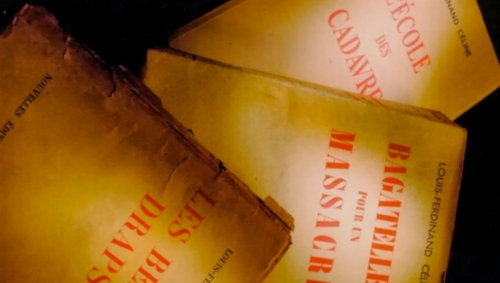

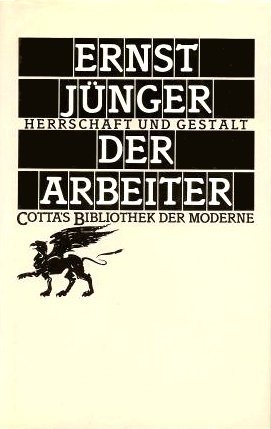 Much of this confusion stems from the fact that National Bolshevism did not have a guiding text or any kind of magnum opus for the proliferation of a workers’ state ruled by nationalist sentiment. The closest to such a founding document is Ernst Junger’s
Much of this confusion stems from the fact that National Bolshevism did not have a guiding text or any kind of magnum opus for the proliferation of a workers’ state ruled by nationalist sentiment. The closest to such a founding document is Ernst Junger’s 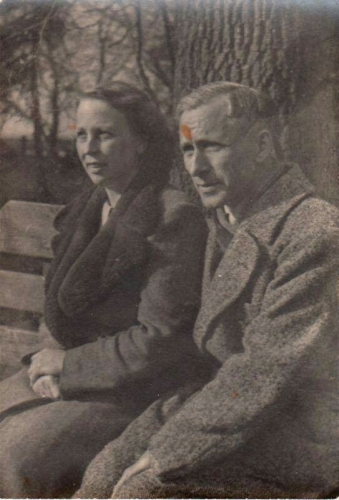 Niekisch would become the greatest propagandist for National Bolshevism during the Weimar era. His short-lived journal Widerstand would publish Junger and other German writers who wanted to mix the austere radicalism of the Bolsheviks with that frontline soldier’s dedication to nation.
Niekisch would become the greatest propagandist for National Bolshevism during the Weimar era. His short-lived journal Widerstand would publish Junger and other German writers who wanted to mix the austere radicalism of the Bolsheviks with that frontline soldier’s dedication to nation.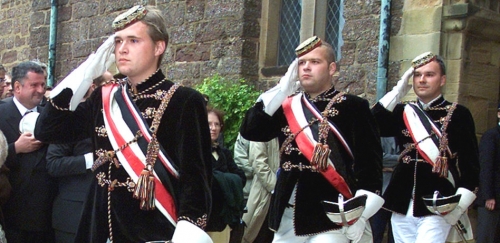
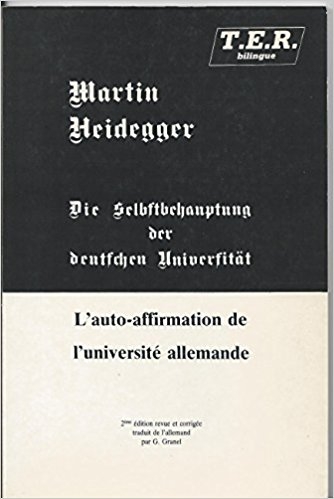 L’on parlera de réussites individuelles, ou de succès statistiques « d’apprenants » dans les examens généraux de fin d’études – mot absurde puisqu’il n ‘y aura pas eu de vrai commencement et de fondation assurée -, et de carrières, mais que vaut un savoir au sein d’une nation ou d’une nature de peuple fragilisée, et ignorant qu’elle porte en elle un destin, lequel la broiera si elle ne le maîtrise ? Cette question s’est posée au professeur Heidegger, le terme de professeur étant plus proche de la profession de foi que de l’exercice mécanique de répétitions vides, brillantes mais infécondes, comme une coque de noix vide.
L’on parlera de réussites individuelles, ou de succès statistiques « d’apprenants » dans les examens généraux de fin d’études – mot absurde puisqu’il n ‘y aura pas eu de vrai commencement et de fondation assurée -, et de carrières, mais que vaut un savoir au sein d’une nation ou d’une nature de peuple fragilisée, et ignorant qu’elle porte en elle un destin, lequel la broiera si elle ne le maîtrise ? Cette question s’est posée au professeur Heidegger, le terme de professeur étant plus proche de la profession de foi que de l’exercice mécanique de répétitions vides, brillantes mais infécondes, comme une coque de noix vide.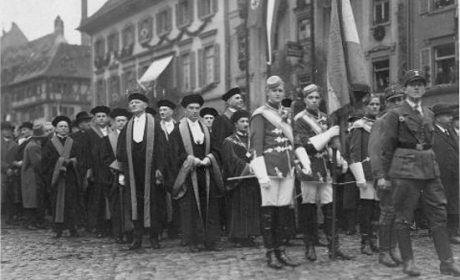
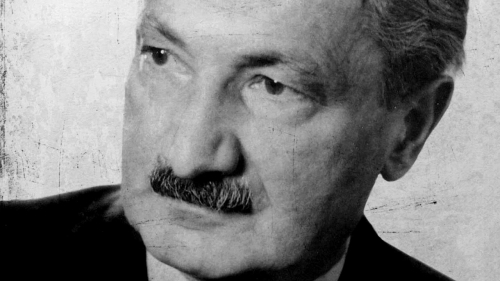

 Les républicains comme les nationalistes tentent de rallier les différents pays européens à leur cause respective. En France, les élections du 3 mai 1936 ont porté au pouvoir une coalition de partis de gauche. Le Front populaire répond, d’abord dans un premier temps, favorablement à la demande de son homologue espagnol avant de faire machine arrière devant la forte opposition de droite qui oscille du côté des nationalistes conduit par le général Francisco Bahamonde y Franco. Parmi les partisans de ce général entré en sédition, le mouvement monarchiste Action française (AF) de Charles Maurras. Son organe de presse éponyme lance une virulente attaque dans ses colonnes contre les républicains et lance des appels aux dons.
Les républicains comme les nationalistes tentent de rallier les différents pays européens à leur cause respective. En France, les élections du 3 mai 1936 ont porté au pouvoir une coalition de partis de gauche. Le Front populaire répond, d’abord dans un premier temps, favorablement à la demande de son homologue espagnol avant de faire machine arrière devant la forte opposition de droite qui oscille du côté des nationalistes conduit par le général Francisco Bahamonde y Franco. Parmi les partisans de ce général entré en sédition, le mouvement monarchiste Action française (AF) de Charles Maurras. Son organe de presse éponyme lance une virulente attaque dans ses colonnes contre les républicains et lance des appels aux dons.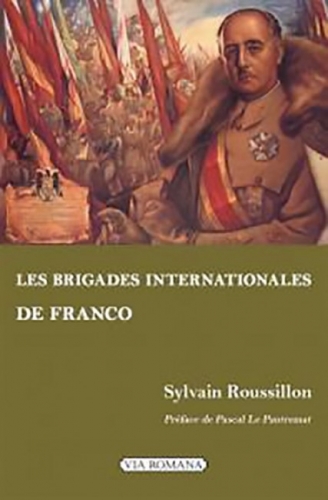 Si d’autres officiers marquent la vie de cette brigade de volontaires monarchistes, tel que le général (cagoulard) Lavigne-Delville (1866-1957), elle n’échappe aux dissensions internes. Chaque groupe nationaliste tentant de s’approprier un leadership à peine reconnu par l’état-major franquiste, quelque peu agacé par l’esprit gaulois de ces volontaires qui s’entendent que trop avec les requetés carlistes. Si ces « légitimistes espagnols » ont rallié le général Franco c’est autant par haine de la république qu’ils entendent restaurer la monarchie au profit du prince Charles –Alphonse de Bourbon. Franco se méfie de ces monarchistes traditionalistes mais ne peut « se payer le luxe » de s’en séparer. Le prétendant carliste est aussi un roi de France (Charles XII) pour la minorité légitimiste française présente au sein de ces volontaires. Face aux camelots du roi, ceux que l’on surnomme les « aplhonsistes » se distinguent par le port du béret vert que l’on retrouve chez les monarchistes de la Rénovation espagnole. Un soutien logique attendu quand on sait que légitimistes français et carlistes partageaient les mêmes convictions et que ces deux groupes s’étaient retrouvés sur les mêmes champs de batailles lors des 3 guerres carlistes qui mèneront un de leur champion (don Carlos VII ou Charles XI) sur un éphémère trône d’Espagne à la fin du XIXème siècle.
Si d’autres officiers marquent la vie de cette brigade de volontaires monarchistes, tel que le général (cagoulard) Lavigne-Delville (1866-1957), elle n’échappe aux dissensions internes. Chaque groupe nationaliste tentant de s’approprier un leadership à peine reconnu par l’état-major franquiste, quelque peu agacé par l’esprit gaulois de ces volontaires qui s’entendent que trop avec les requetés carlistes. Si ces « légitimistes espagnols » ont rallié le général Franco c’est autant par haine de la république qu’ils entendent restaurer la monarchie au profit du prince Charles –Alphonse de Bourbon. Franco se méfie de ces monarchistes traditionalistes mais ne peut « se payer le luxe » de s’en séparer. Le prétendant carliste est aussi un roi de France (Charles XII) pour la minorité légitimiste française présente au sein de ces volontaires. Face aux camelots du roi, ceux que l’on surnomme les « aplhonsistes » se distinguent par le port du béret vert que l’on retrouve chez les monarchistes de la Rénovation espagnole. Un soutien logique attendu quand on sait que légitimistes français et carlistes partageaient les mêmes convictions et que ces deux groupes s’étaient retrouvés sur les mêmes champs de batailles lors des 3 guerres carlistes qui mèneront un de leur champion (don Carlos VII ou Charles XI) sur un éphémère trône d’Espagne à la fin du XIXème siècle.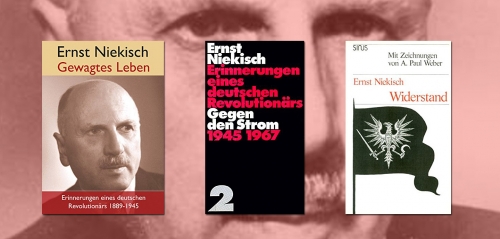
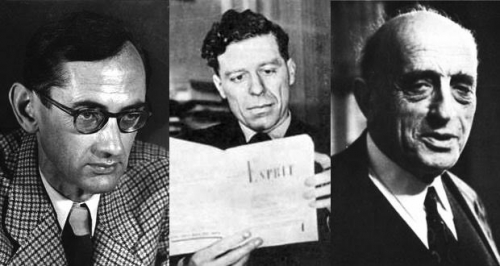
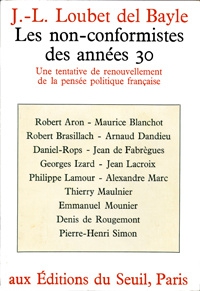
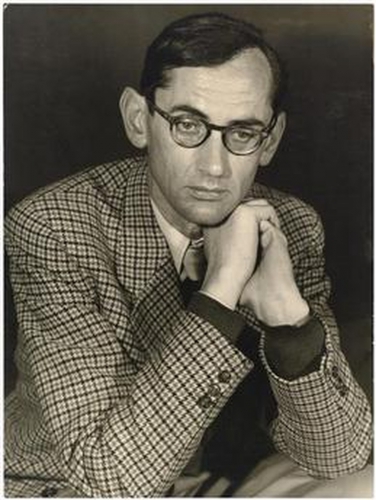 La tentative échouée de ré-instaurer un ordre sain et véritable n’est sans doute pas pour autant le fait de la méthode choisie par les non-conformistes. C’est bien plutôt la vérification de ce que ce sont les révolutions qui font les véritables révolutionnaires, et non pas les prétendus révolutionnaires qui font les révolutions. Pour autant on peut regretter que la force, la cohérence et le talent de cette génération n’aient pas eu davantage de portée, et qu’elle n’ait pas perduré en tant que telle. Toutes ses tendances ont été éclatées par l’histoire, et respectivement digérées, si ce n’est détournées, par d’autres formations politiques et intellectuelles d’envergure. Mais le regard acéré de cette génération sur un monde agonisant, tout comme le patronage de ses pères spirituels et son attitude circonspecte, survivent. Les non-conformistes des années 1930 auront au moins créé, ou du moins renouvelé, une tradition d’intellectuels dés-engagés, impatients et irrécupérables.
La tentative échouée de ré-instaurer un ordre sain et véritable n’est sans doute pas pour autant le fait de la méthode choisie par les non-conformistes. C’est bien plutôt la vérification de ce que ce sont les révolutions qui font les véritables révolutionnaires, et non pas les prétendus révolutionnaires qui font les révolutions. Pour autant on peut regretter que la force, la cohérence et le talent de cette génération n’aient pas eu davantage de portée, et qu’elle n’ait pas perduré en tant que telle. Toutes ses tendances ont été éclatées par l’histoire, et respectivement digérées, si ce n’est détournées, par d’autres formations politiques et intellectuelles d’envergure. Mais le regard acéré de cette génération sur un monde agonisant, tout comme le patronage de ses pères spirituels et son attitude circonspecte, survivent. Les non-conformistes des années 1930 auront au moins créé, ou du moins renouvelé, une tradition d’intellectuels dés-engagés, impatients et irrécupérables.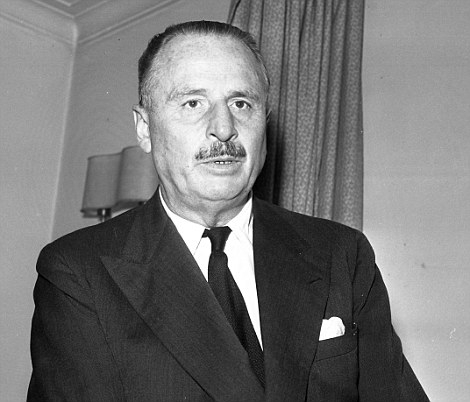
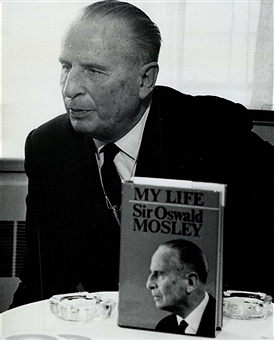 Europa als dritte Kraft
Europa als dritte Kraft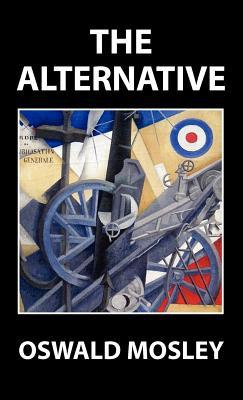 Dies geschah mithilfe der deutschen Edition seines Werkes The Alternative, das auch in anderen Sprachen erhältlich war und sogar das Lob General Francos in Spanien gefunden hatte. Mosley pflegte Umgang mit der Familie Otto Skorzenys, des Mussolini-Befreiers und vertrat die Auffassung, die internationalen Formationen der Waffen SS gegen Ende des Krieges hätten seine Idee eines gesamteuropäischen, antikommunistischen Nationalismus vorweggenommen. Persönlich reiste Mosley nach Spanien, Portugal, Italien sowie nach Südamerika, stets unter dem wachsamen Auge des britischen Geheimdienstes MI6.
Dies geschah mithilfe der deutschen Edition seines Werkes The Alternative, das auch in anderen Sprachen erhältlich war und sogar das Lob General Francos in Spanien gefunden hatte. Mosley pflegte Umgang mit der Familie Otto Skorzenys, des Mussolini-Befreiers und vertrat die Auffassung, die internationalen Formationen der Waffen SS gegen Ende des Krieges hätten seine Idee eines gesamteuropäischen, antikommunistischen Nationalismus vorweggenommen. Persönlich reiste Mosley nach Spanien, Portugal, Italien sowie nach Südamerika, stets unter dem wachsamen Auge des britischen Geheimdienstes MI6.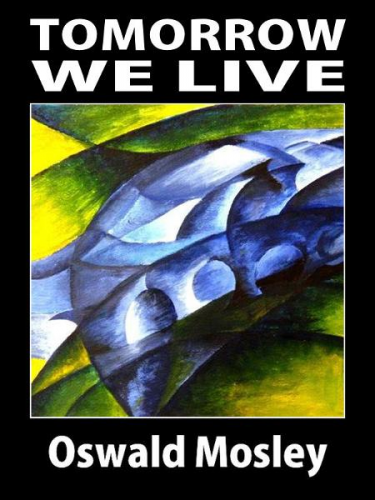 Mosley wie Evola konnten über die Verbrechen des Faschismus und seiner extremen Ableitung des Nationalsozialismus schwerlich hinwegsehen. Oswald Mosley verfiel in dieser Frage in eine dunkle Erlösungs-Mystik, die er sowohl bei Nietzsche fand, als auch seiner Lektüre von Goethes Faust zu verdanken hatte. Das Böse sei für den faustischen Menschen, zu dessen Gattung die Deutschen nun einmal gehörten, die unvermeidliche Finsternis auf dem langen Weg zum Licht. Ganz gleich, ob man sich zu solcherlei esoterischen Spekulationen hingezogen fühlt oder nicht, beide Autoren kamen nicht umhin, die Verbrechen anzuerkennen, sie aber zugleich vom Ur-Faschismus zu trennen. Nur so glaubten sie, den lähmenden Schuldkomplex überwinden zu können. Denn an die Mobilisierungs-Energie dieses frühen Faschismus sollten auch zukünftige Generationen wieder andocken dürfen.
Mosley wie Evola konnten über die Verbrechen des Faschismus und seiner extremen Ableitung des Nationalsozialismus schwerlich hinwegsehen. Oswald Mosley verfiel in dieser Frage in eine dunkle Erlösungs-Mystik, die er sowohl bei Nietzsche fand, als auch seiner Lektüre von Goethes Faust zu verdanken hatte. Das Böse sei für den faustischen Menschen, zu dessen Gattung die Deutschen nun einmal gehörten, die unvermeidliche Finsternis auf dem langen Weg zum Licht. Ganz gleich, ob man sich zu solcherlei esoterischen Spekulationen hingezogen fühlt oder nicht, beide Autoren kamen nicht umhin, die Verbrechen anzuerkennen, sie aber zugleich vom Ur-Faschismus zu trennen. Nur so glaubten sie, den lähmenden Schuldkomplex überwinden zu können. Denn an die Mobilisierungs-Energie dieses frühen Faschismus sollten auch zukünftige Generationen wieder andocken dürfen.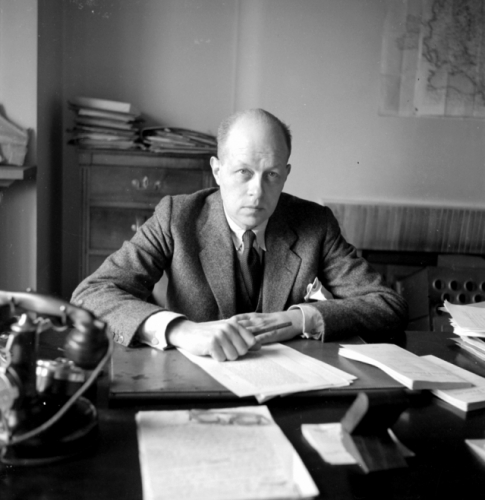
 Tout change pour Drieu à partir de l’attaque du Parlement par les ligues d’extrême droite du 6 février 1934. Dans les semaines qui suivent l’événement, Drieu part avec son ami Bertrand de Jouvenel en Allemagne où il rencontre Otto Abetz, futur ambassadeur du IIIème Reich à Paris pendant l’Occupation, qui lui propose de réaliser une série de conférence dans le pays. La succession d’affaires de corruption touchant la IIIème République et les premières expériences fascistes à l’étranger encouragent Drieu à croire à une régénérescence de la France par le fascisme afin d’empêcher le pays de sombrer dans une décadence orchestrée par les Francs-Maçons, la démocratie parlementaire, les gauchistes et les juifs qui l’obsèdent. La même année Drieu écrit un nouvel essai politique, Socialisme-Fascisme, dans lequel il déploie sa nouvelle idéologie. Deux ans plus tard il adhère au PPF de Jacques Doriot, premier parti français ouvertement fasciste, et devient éditorialiste dans l’organe de propagande du mouvement : l’Émancipation Nationale. C’est lors de ces années de changements radicaux qu’il écrit son plus grand roman à forte teneur autobiographique : Gilles.
Tout change pour Drieu à partir de l’attaque du Parlement par les ligues d’extrême droite du 6 février 1934. Dans les semaines qui suivent l’événement, Drieu part avec son ami Bertrand de Jouvenel en Allemagne où il rencontre Otto Abetz, futur ambassadeur du IIIème Reich à Paris pendant l’Occupation, qui lui propose de réaliser une série de conférence dans le pays. La succession d’affaires de corruption touchant la IIIème République et les premières expériences fascistes à l’étranger encouragent Drieu à croire à une régénérescence de la France par le fascisme afin d’empêcher le pays de sombrer dans une décadence orchestrée par les Francs-Maçons, la démocratie parlementaire, les gauchistes et les juifs qui l’obsèdent. La même année Drieu écrit un nouvel essai politique, Socialisme-Fascisme, dans lequel il déploie sa nouvelle idéologie. Deux ans plus tard il adhère au PPF de Jacques Doriot, premier parti français ouvertement fasciste, et devient éditorialiste dans l’organe de propagande du mouvement : l’Émancipation Nationale. C’est lors de ces années de changements radicaux qu’il écrit son plus grand roman à forte teneur autobiographique : Gilles.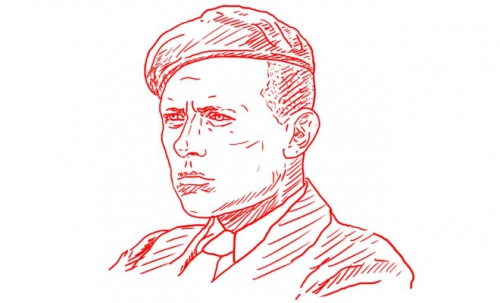
 Jamais Drieu ne brigua de mandat électif – son antiparlementarisme l’en empêchait - mais son engagement politique est manifeste. Membre du
Jamais Drieu ne brigua de mandat électif – son antiparlementarisme l’en empêchait - mais son engagement politique est manifeste. Membre du 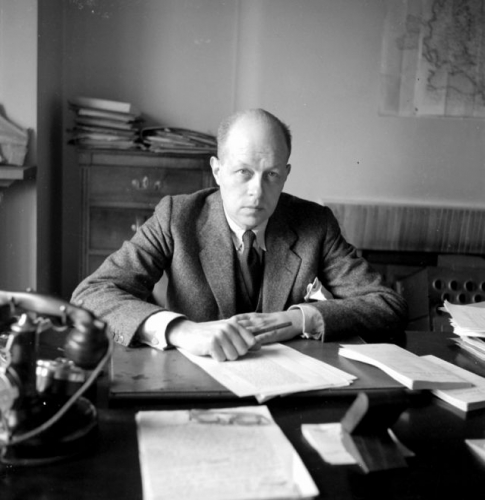
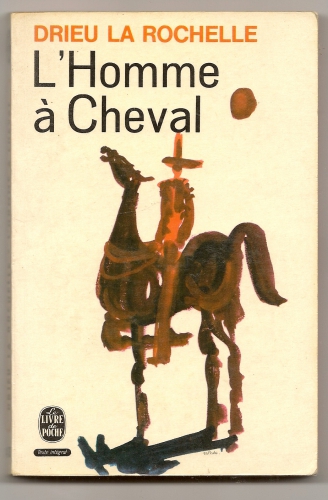 Stendhal, Balzac, Zola...: Drieu n’ignore pas le 19ème siècle mais de ces références il ne garde que des «lambeaux, et à la limite de la parodie». Pourtant, ce qui fait d’abord la force, l’attrait de ses textes, c’est qu’il s’agit de grands romans d’amour.
Stendhal, Balzac, Zola...: Drieu n’ignore pas le 19ème siècle mais de ces références il ne garde que des «lambeaux, et à la limite de la parodie». Pourtant, ce qui fait d’abord la force, l’attrait de ses textes, c’est qu’il s’agit de grands romans d’amour.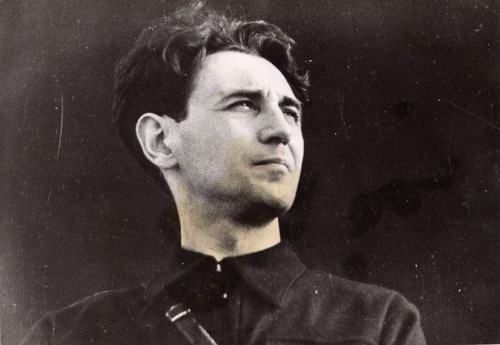
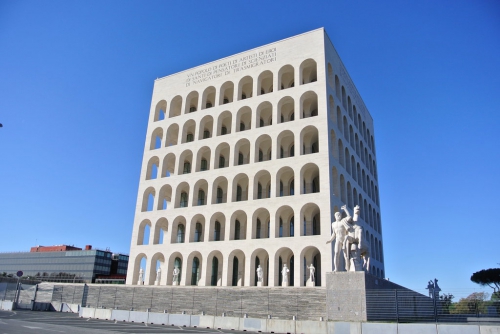
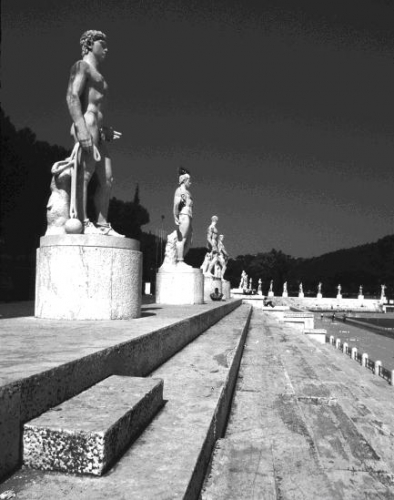 So what exactly is fascism? This question, Gottfried insists, “has sometimes divided scholars and has been asked repeatedly ever since Mussolini’s followers marched on Rome in October 1922.” Gottfried presents several adjectives, mostly gleaned from the work of others, to describe fascism: reactionary, counterrevolutionary, collectivist, authoritarian, corporatist, nationalist, modernizing, and protectionist. These words combine to form a unified sense of what fascism is, although we may never settle on a fixed definition because fascism has been linked to movements with various distinct characteristics. For instance, some fascists were Christian (e.g., the Austrian clerics or the Spanish Falange) and some were anti-Christian (e.g., the Nazis). There may be some truth to the “current equation of fascism with what is reactionary, atavistic, and ethnically exclusive,” Gottfried acknowledges, but that is only part of the story.
So what exactly is fascism? This question, Gottfried insists, “has sometimes divided scholars and has been asked repeatedly ever since Mussolini’s followers marched on Rome in October 1922.” Gottfried presents several adjectives, mostly gleaned from the work of others, to describe fascism: reactionary, counterrevolutionary, collectivist, authoritarian, corporatist, nationalist, modernizing, and protectionist. These words combine to form a unified sense of what fascism is, although we may never settle on a fixed definition because fascism has been linked to movements with various distinct characteristics. For instance, some fascists were Christian (e.g., the Austrian clerics or the Spanish Falange) and some were anti-Christian (e.g., the Nazis). There may be some truth to the “current equation of fascism with what is reactionary, atavistic, and ethnically exclusive,” Gottfried acknowledges, but that is only part of the story.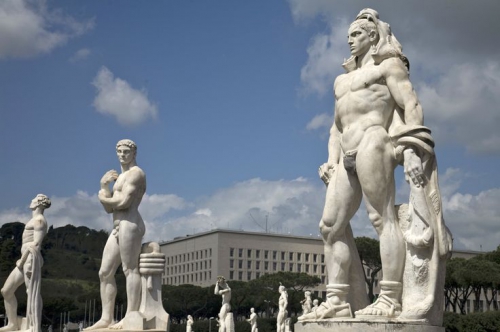
In einem Kommentar in Tichys Einblick stand neulich zu lesen, dass selbst ein Rücktritt der Kanzlerin an der Gesamtlage wenig ändern würde, da links-liberales Gedankengut immer noch zu tief in den maßgebenden Teilen der Gesellschaft verankert sei.
Erst eine Art „Langer Marsch“ durch die Köpfe und Herzen der Menschen könne nachhaltige Veränderung bringen oder aber, gleichsam als Abkürzung, Krieg und/oder Revolution. Warum letzteres unter jetzigen (west-)deutschen Verhältnissen eher unwahrscheinlich ist, hat Ernst Niekisch gegen Ende seines bewegten Lebens vorausgesehen.
Der schwer zu klassifizierende Publizist und Politiker, der heute im Zuge von Querfront-Strategien wieder herangezogen wird, war ein Enttäuschter der Geschichte, zumal der deutschen. Nirgendwo richtig zu Hause und von den Strapazen der NS-Haft gezeichnet, verlor er zum Schluss sein Augenlicht, was sein politisches Gespür allerdings umso schärfer werden ließ. Gleich einem prosaisch-preußischen Homer sah er statt Götter Ideen auf den Schlachtfeldern der Geschichte gegeneinander streiten. Die bürgerliche Ideologie in all ihren Verkleidungen und Verästelungen nahm für ihn die Rolle des Trojanischen Pferdes ein. Sie verhinderte immer wieder den ersehnten revolutionären Durchbruch – bis heute.
Auf der Suche nach der Revolution
Ernst Niekisch war geborener und stolzer Preuße, der die erste Zeit seines politischen Wirkens allerdings im „Feindesland“, nämlich in Bayern zubrachte. Er kommt am 23. Mai 1889 in kleinbürgerlichen Verhältnissen in Trebnitz/Schlesien zu Welt und bleibt zeitlebens ein erklärter Feind bürgerlicher Wertvorstellungen. 1908 als Einjährig-Freiwilliger eingezogen und im Ersten Weltkrieg in der Etappe eingesetzt, verabscheute er Militarismus und Pazifismus gleichermaßen.
Kein Rassist, aber vom Adel der preußischen Rasse überzeugt, wird er zum nationalen, nicht-marxistischen Sozialisten, der zeitweise von einem preußisch-russischen Agrarimperium schwärmt. Die Kriegseuphorie des Sommers 1914 lässt ihn vergleichsweise kalt, während ihn der Ausbruch der Oktoberrevolution 1917 in Russland mit Begeisterung erfüllt und in die Politik treibt. Es ist mehr Ehrgeiz und nicht wirkliche Überzeugung, die Niekisch 1917 in die SPD eintreten lässt, liebäugelt er doch bereits mit einem Einzug in eine künftige Regierung. „Ich meine, es müsste sich nun endlich meine Zeit erfüllen“, schreibt er, vor Sendungsbewusstsein strotzend, in sein Tagebuch.
Rätebewegung
In der Phase der Arbeiter- und Soldatenräte wird er in einer Augsburger Kaserne zum Vorsitzenden des dortigen Rates gewählt. Niekisch steht für eine Revolution ohne Kommunismus, obwohl er den Marxismus vor allem für seine soziale Diagnostik schätzt. Die Moskau-Hörigkeit der späteren KPD wird er hingegen ablehnen. Die Rätebewegung sieht er als Plattform, um das „nötige Gemeinschafts- und Brüderlichkeitsgefühl“ unter den Deutschen zu erwecken. Doch ist er in seiner Politik nicht konsequent genug, da er in einer vermittelnden Position gegenüber der bayerischen Landesregierung verharrt und die letzte Radikalität in der Praxis scheut.
Nach Ende der Münchener Räterepublik wird er verhaftet und zu einer Gefängnisstrafe verurteilt, die er u.a. zusammen mit dem Anarchisten Erich Mühsam verbüßt. Zuvor war Niekisch in die Redaktion der USPD-nahen Zeitung Umschau eingetreten, bevor er im Jahre 1926 die SPD ganz verlassen wird, um einem drohenden Rauswurf zuvorzukommen. Da hatte er sich unter dem Einfluss von Oswald Spengler schon zum sozialistischen Nationalisten gewandelt. Ähnlich Hitler, den er schon vor 1933 bekämpft, tritt er bald darauf in eine Splitterpartei ein, die er gemäß seinen Vorstellungen umzuwandeln gedenkt: der sogenannten Alten Sozialdemokratischen Partei, die sich als Alternative zu NSDAP und SPD positionieren will.
Im Widerstand zusammen mit den Gebrüdern Jünger
Ernst Niekisch nimmt in dieser Phase auch Fühlung zu den diversen paramilitärischen Bünden auf, wie dem Bund Oberland, dem Wehrwolf oder dem Jungdeutschen Orden, da er vor allem die Entfesselung aller revolutionären Energien auf nationaler Ebene vorantreiben will. Von manchen dieser Organisationen lässt er sogar die Parteiveranstaltungen bewachen, auf denen auch das Horst-Wessel-Lied erklingt. Aber anders als Hitler ist Niekisch bei seinen Projekten allenfalls mäßig erfolgreich. Bekannter wird er in dieser Zeit vor allem durch seine Zeitschrift Widerstand, für die er u.a. die Gebrüder Jünger als Autoren gewinnen kann.
Auch diesem Projekt, das gleichwohl wie nichts zuvor und danach mit seinem Namen verknüpft bleiben sollte, ist kein langes Leben beschieden. Die anhebende NS-Diktatur ist ihm nicht revolutionär genug und Hitler wird in den Augen des Preußen Niekisch stets ein überspannter österreichischer Kleinbürger bleiben, dessen dogmatischer Rassismus ihm letztlich fremd ist. Ernst Niekisch geht in die innere Emigration, kann aber einen Kreis ehemaliger politischer Gefährten bei der Stange halten.
1939 wird er wegen Verschwörungsabsichten vom Regime zu lebenslänglichem Zuchthaus verurteilt. Die Solidarität unter den kommunistischen Häftlingen wird ihn tief beeindrucken, so dass er sich nach seiner Befreiung dem neuen SED-Regime der beginnenden DDR zur Verfügung stellt. Es folgen Tätigkeiten als Dozent sowie als Volkskammerabgeordneter der herrschenden Einheitspartei. Obwohl eine Anbindung an Russland zu den Konstanten in Niekischs geopolitischen Ansichten zählt, protestiert er gegen die gewaltsame Niederschlagung des Aufstands vom 17. Juni 1953 und gilt in der SED fortan als eigenbrötlerischer Sektierer. 1963 zieht er nach Westberlin und muss von nun an in der ungeliebten Bundesrepublik auf demütigende Weise jahrelang für sich und seine Frau eine Rente einklagen.
Die Geschichte als Feind
Dass eine Revolution nach dem Geschmack Niekischs in Deutschland weitgehend ausblieb, versucht er immer wieder in seinen Schriften zu ergründen. Er ist fast so etwas wie ein permanent Ernüchterter, der sich nach dem Rausch sehnt. Diese Enttäuschung über den Gang der Dinge in Deutschland macht aus dem glücklosen Politiker den Publizisten Niekisch, der bald zu jedem Gebiet der Ideengeschichte etwas zu sagen weiß. Dabei stößt er immer wieder auf den spezifisch kleinbürgerlichen Geist, welcher in der deutschen Geschichte den großen Wurf, das tollkühne Wagnis der Freiheit bestenfalls in Ansätzen zugelassen hat. Ein Gedanke, der ihn nicht mehr loslassen sollte.
Im Gegenteil, das erwachende Bürgertum trat in die Gefolgschaft der Höfe und sicherte somit den Erfolg der Reformation und erbte dafür einen Charakterzug, der bis heute, wenn auch in völlig anderer Gewandung, hervorsticht: den Gehorsam gegenüber der Obrigkeit. Man denke hier nur an Luthers Rolle in den Bauernkriegen. Für Ernst Niekisch hat das deutsche Bürgertum auf die Revolution verzichtet und die politische Macht dem Adel überlassen (mit Ausläufern bis 1848). Ideen hatten demzufolge in deutschen Gebieten nur die Chance, von der herrschenden Aristokratie zu eigen gemacht zu werden. Als Beispiel führt der Autor den Preußenkönig Friedrich II. an, der die Aufklärung mit dem Militarismus seines Vaters zu paaren versuchte.
Das Volk als kämpferische Klasse
Es ging also letztlich immer nur „von oben“ herab. Im erstarkenden Preußen kam hinzu, dass dort der Bürger immer auch Soldat war und die Gewalt bzw. die militärische Stärke die Rolle der Idee einnahm. Parallel dazu verlegte sich das aufstrebende Bürgertum, hier im Einklang mit dem Bürgertum anderer Länder, auf das Gebiet der Wirtschaft und nahm hier bald die Rolle des Adels an, „denn auch die bürgerliche Gesellschaft brauchte, wie die feudale Gesellschaft, Menschen, denen das Mark aus den Knochen gesogen werden konnte“, so Niekisch in sozialistischer Aufwallung. Ab diesem Punkt argumentiert er über weite Strecken entlang klassisch marxistischer Parameter. Der sich langsam etablierende bürgerliche Zuschnitt der Demokratie (fast) allerorten ist nach ihm nichts anderes, als ein subtiler Wechsel der Methodik.
Die wachsende Zahl der Proletarier bleibt wirksam ausgeschlossen, obwohl ihm formalpolitisch alle Rechte zugestanden werden. Schlimmer noch: Es bleibt im ideellen Einflussbereich des Bürgertums, dessen Wertvorstellungen es bewusst oder unbewusst übernimmt. Ein proletarisches Klassenbewusstsein, das die Stärke einer einheitlichen Masse in die Waagschale werfen könnte, kommt wenn überhaupt nur in Ansätzen zustande. Der kommunistische Internationalismus ist in Niekischs Augen zudem ein nutzloser ideeller Fremdkörper im deutschen (und nicht nur deutschen) Proletariat. Ernst Niekisch will das Volk als Klasse und zwar als eine kämpferische.
In späterer Zeit wird er auf die USA blicken, deren Marshall-Plan er als Bestechungsgeld an die Deutschen verachtet. Gleichzeitig erkennt er die Cleverness der USA an, sich die Arbeiterklasse gefügig zu machen und die kommunistische Bedrohung im Inland weitgehend auszuschalten. Das amerikanische Modell der von ihm so genannten Clerk-Demokratie lässt jede Widerstandsbewegung wie eine Welle sich totlaufen.
Die Clerk-Demokratie: eine totalitäre Phantasterei?
Die Niekisch-Biografin Birgit Rätsch-Langejürgen schreibt über Niekischs späte Weltsicht: „Es war keine Traumwelt, keine bessere Welt, vielmehr verstieg er sich wie ehedem zu totalitären Phantastereien“. Wer auf den heutigen Zuschnitt der westeuropäisch-amerikanischen Gesellschaft blickt, findet Niekischs Überlegungen weniger als Phantasterei denn als realitätsnahe Prognose. Mit dem englischen Begriff „Clerk“ fasst Niekisch die Gesamtheit aller sachbearbeitenden Dienstleistungen einer zunehmend technokratischen Welt zusammen, was ziemlich genau auf heutiges wie zukünftiges Wirtschaften zutrifft.
Bereits 1935 beschreibt er in der Manier eines H. G. Wells in Die Dritte Imperiale Figur die Fusion zwischen Geist und Funktion im Typus des Funktionärs, den er kurzerhand als „Barbaren modernen Zuschnitts“ bezeichnet. Die einzige Revolution, die hier noch stattfindet, ist die technologische. Ihr fügt sich alles. „Das Dasein muß präzis, im Sinne einer Maschine, funktionieren“, schreibt Niekisch und fügt hinzu, dass diese Revolution um die Welt gehen und den Menschen ganz neu konstituieren werde.
Später wird Niekisch in seiner Schau präziser. Der innere Zusammenhalt der Clerk-Gesellschaften funktioniert fast wie autogenes Training. Entlang der Phasen Mechanisierung, Typisierung und Normierung entsteht ein Menschentypus, dem auf der einen Seite jede Behaglichkeit in Aussicht gestellt wird oder real zur Verfügung steht, von dem aber auf der anderen Seite totale Unterordnung unter die laufenden Wirtschaftsprozesse gefordert wird. Damit dies möglichst reibungslos vonstattengeht, muss jeder Widerstandswille gleichsam in Watte erstickt bzw. subjektiv als sinnlos und ungerechtfertigt erlebt werden. „Das Behagen am gehobenen Lebensstandard, das Wohlgefühl einer verhältnismäßigen Gesichertheit erstickt den Kampfgeist; man ahnt, daß man, wenn man ihn noch pflegte, vieles aufs Spiel setzen würde“, so Niekisch in einem Aufsatz über die Clerkisierung.
Das Sterben der Ideen
Revolutionen entstehen nach Niekisch fast immer aus Verzweiflung heraus. Wichtig sei, dass die eigentlichen Mächte, die über die Zustände wachen, im Hintergrund bleiben, denn diese Gleichschaltung soll auf freiwilliger Basis erfolgen und möglichst unbemerkt bleiben. Wer das erreichen will, muss bestrebt sein, den Menschen in seinen Schwächen zu packen, ihn auf breiter Front zu entpolitisieren, ihn zu entmündigen, ihn von Verantwortung zu entlasten oder besser noch ihn zum Komplizen seiner eigenen Entmenschlichung zu machen.
Letzteres geht am besten durch den Einsatz dessen, was das Bürgertum groß gemacht hat: einer Idee. Denn, so Niekisch, „der liberale Mensch steht unausgesetzt unter der Kontrolle eines Menschenbildes“. Wenn das Menschenbild politisch edel erscheint, ist man eher geneigt, die wirtschaftliche Ausbeutung für seine vermeintliche Realisierung hinzunehmen. Letztlich führen diese Ideen zum Sterben der Ideen als solchen, was den Machtverwaltern nur recht sein kann. Der Clerk ist eine Schattengestalt in einem Schattenreich unter künstlicher Beleuchtung. Will er zu sich selbst zurückkehren, will er im Willen zum Widerstand sein Menschsein zurückerlangen, möge er sich am Wort des französischen Revolutionärs Camille Desmoulins aufrichten, der einmal gesagt haben soll: „Die Dinge erscheinen uns nur riesig, weil wir auf unseren Knien sind; lasst uns aufstehen!“
In BN-Anstoß VIII mit dem Titel Aufstand des Geistes. Konservative Revolutionäre im Profil (2016 erschienen) finden sich zehn Portraits über Denker, die wir wiederentdecken müssen. Niekisch ist auch dabei. Hier bestellen!